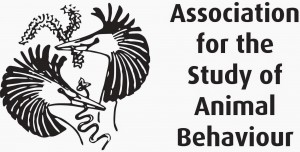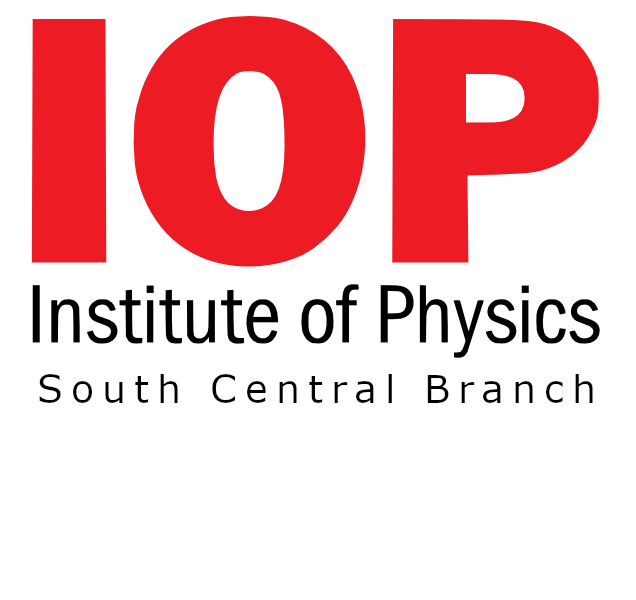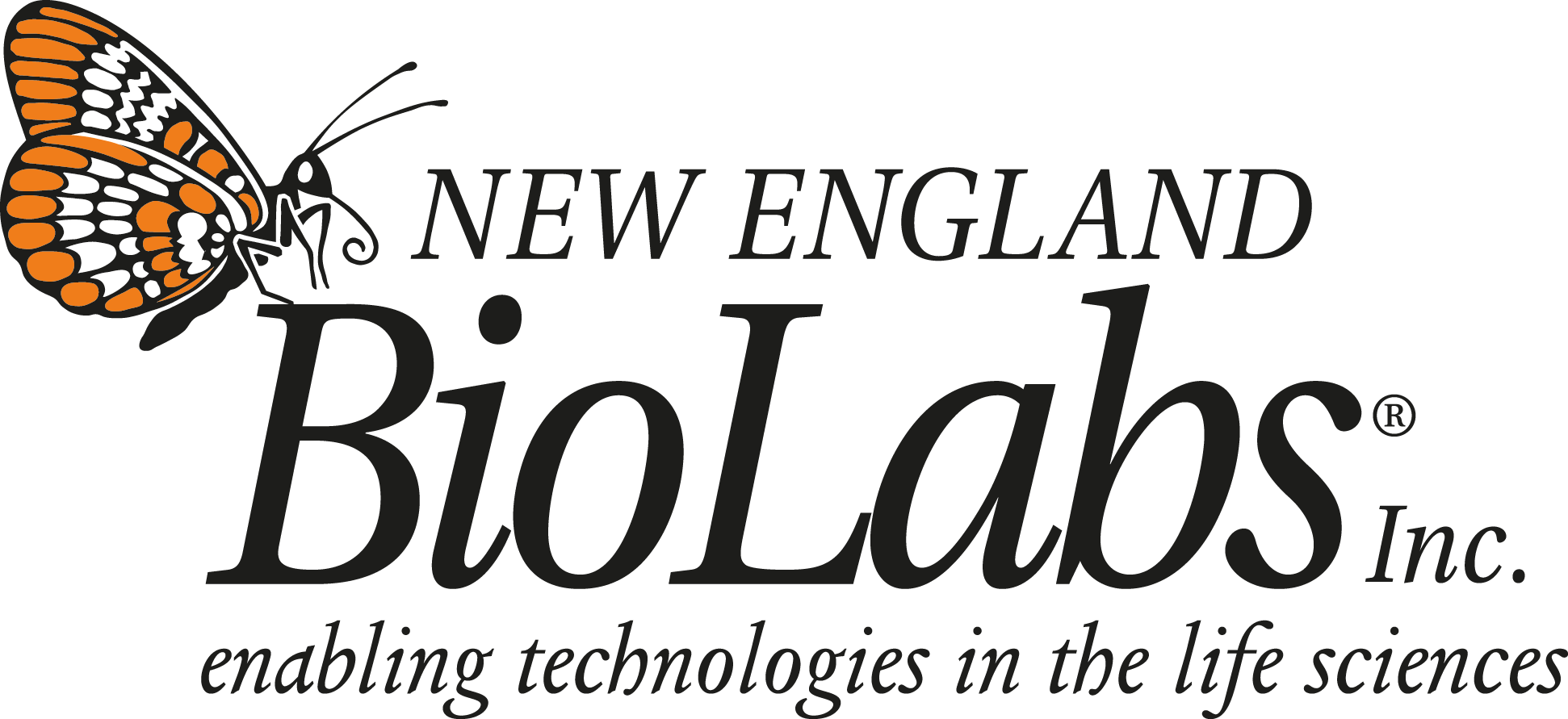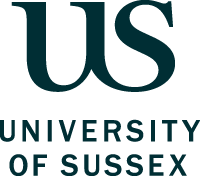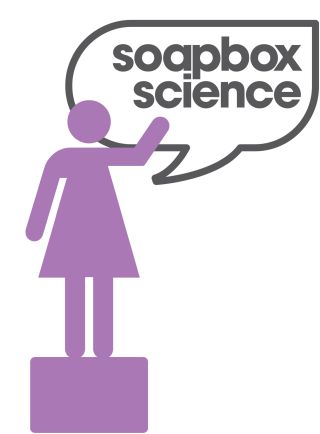
- The team -
|
Soapbox Science Brighton 2023
|
We had all four seasons for Soapbox Science Brighton 2023, with the event starting under rain but finishing under blue skies!
A collection of photographs from the event, and full details about the scientists speaking, can be seen below.
1 / 30
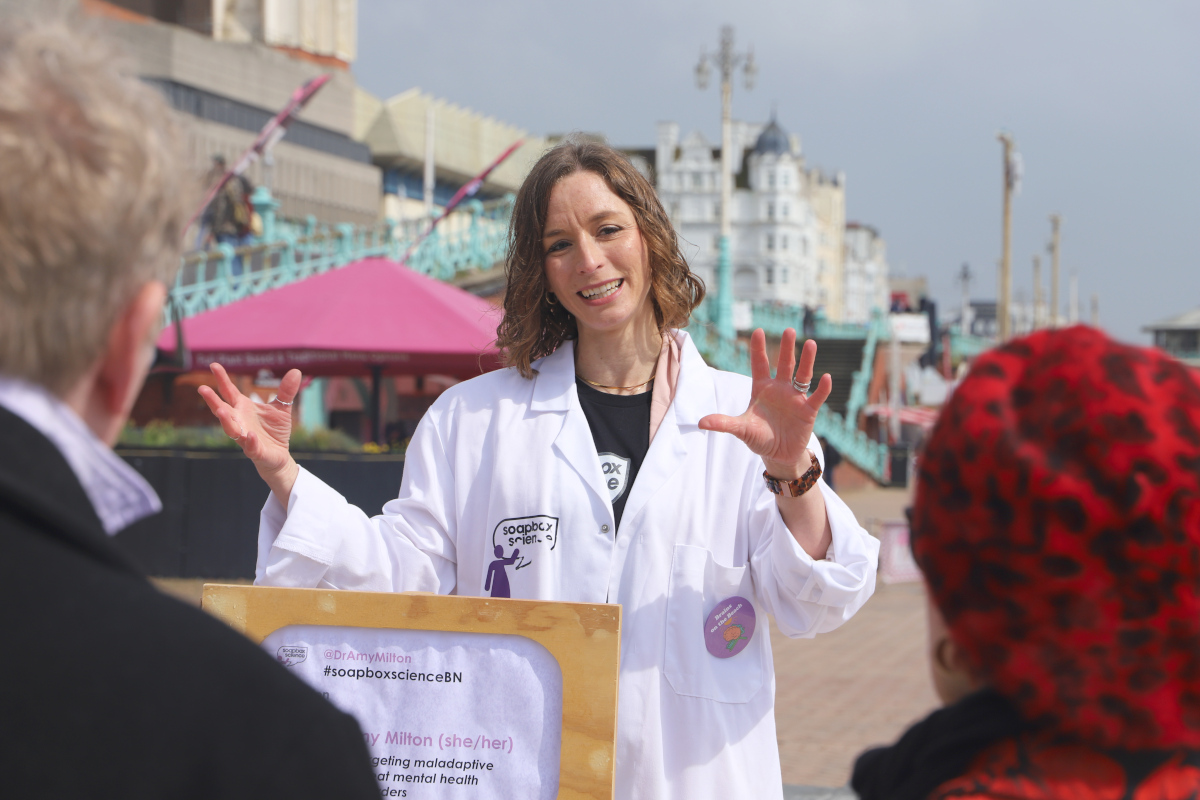
2 / 30
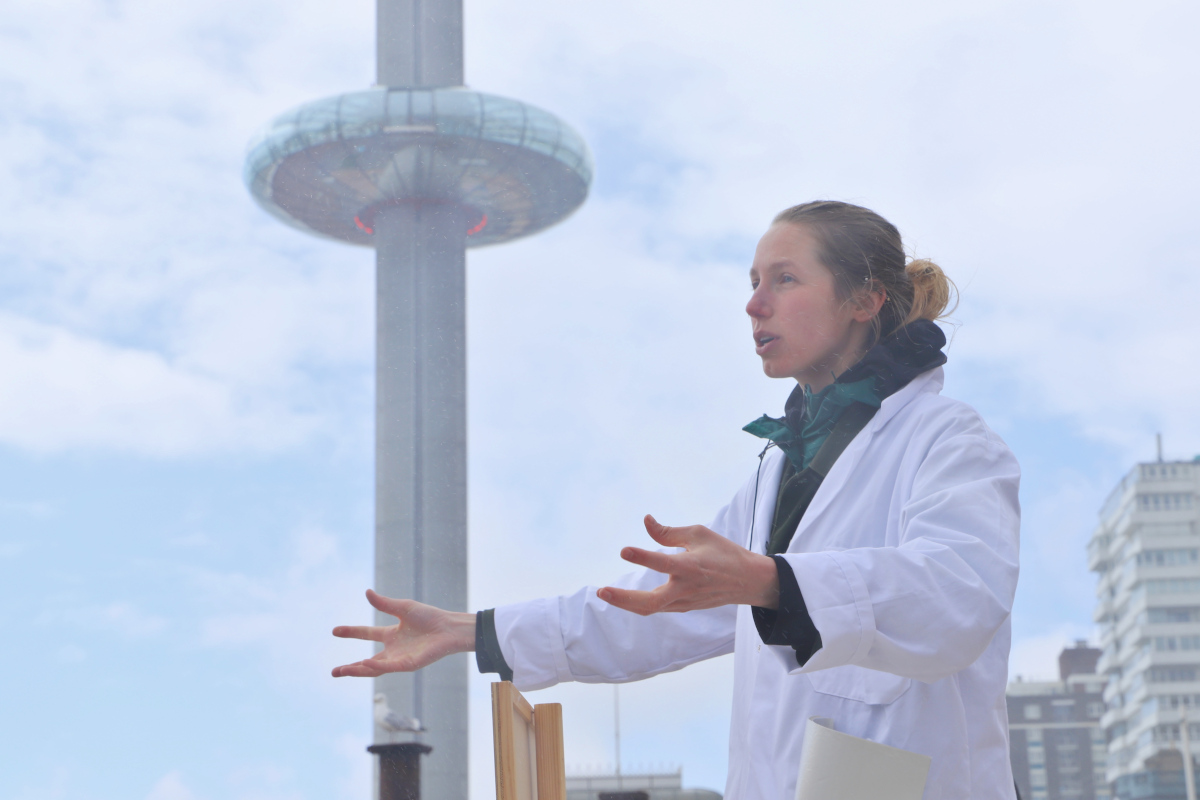
3 / 30
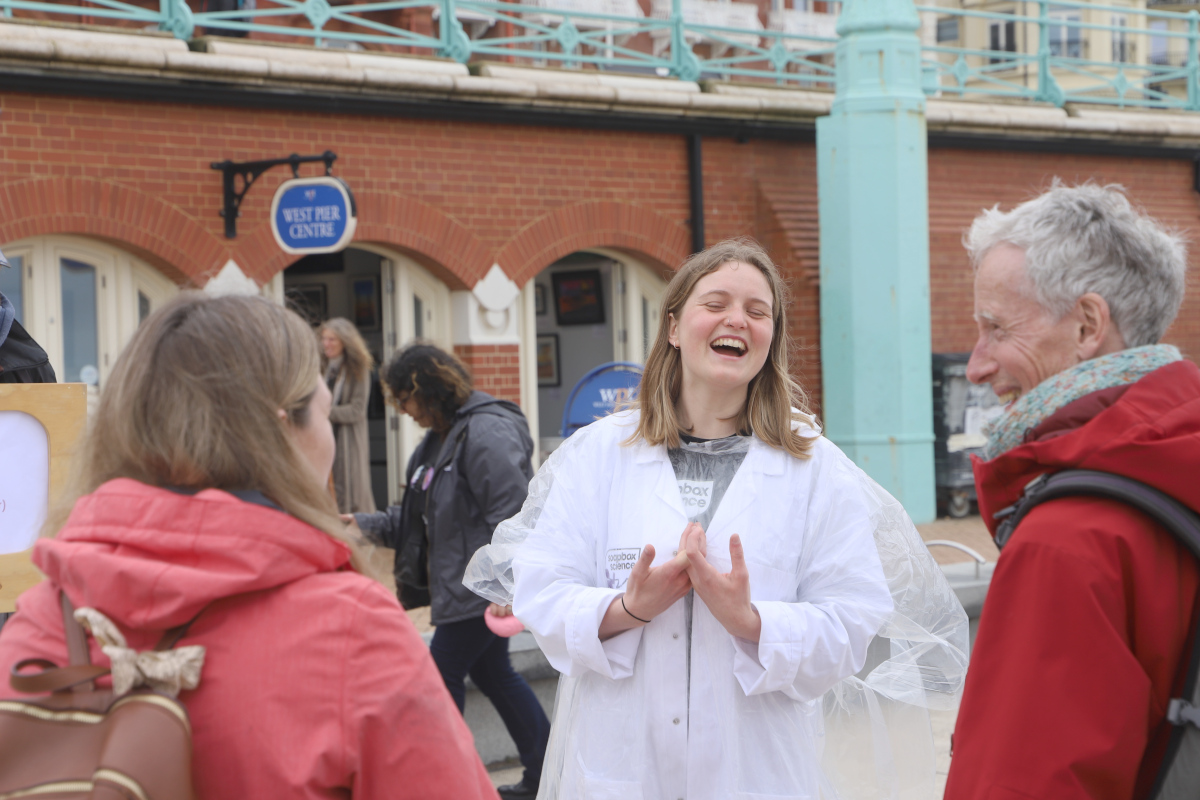
4 / 30
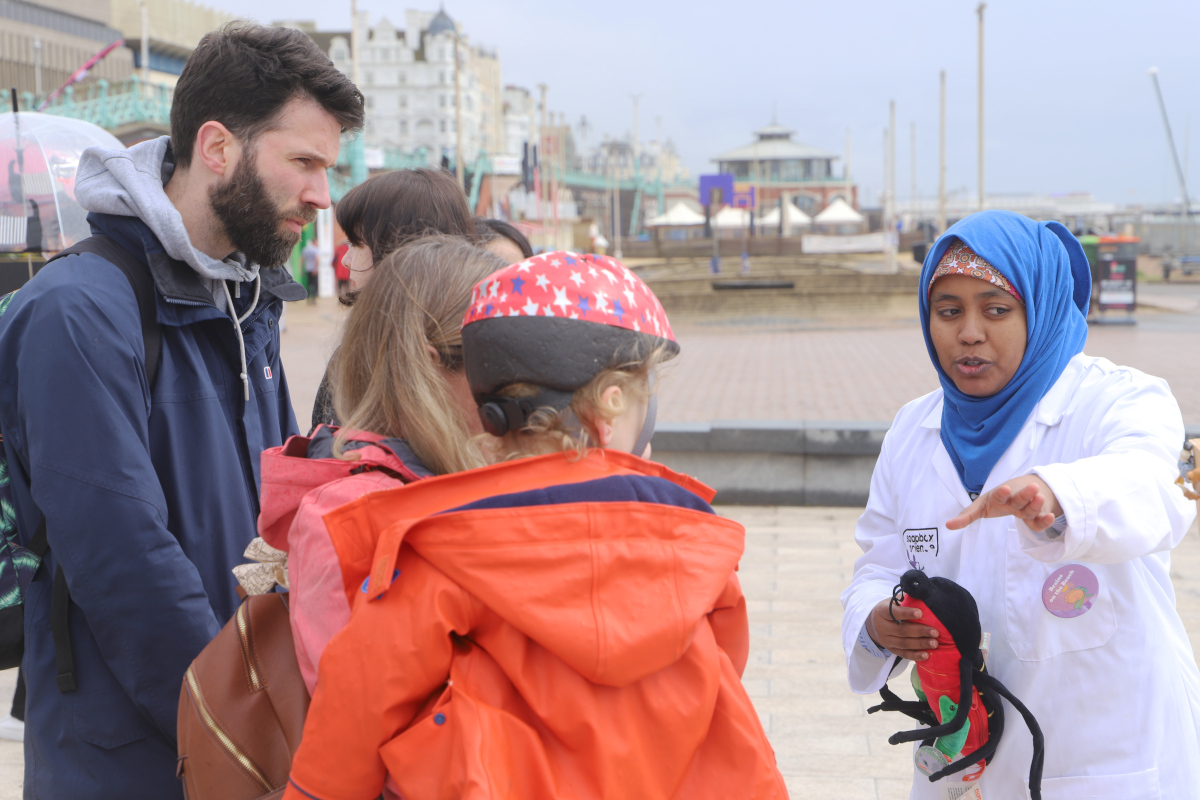
5 / 30
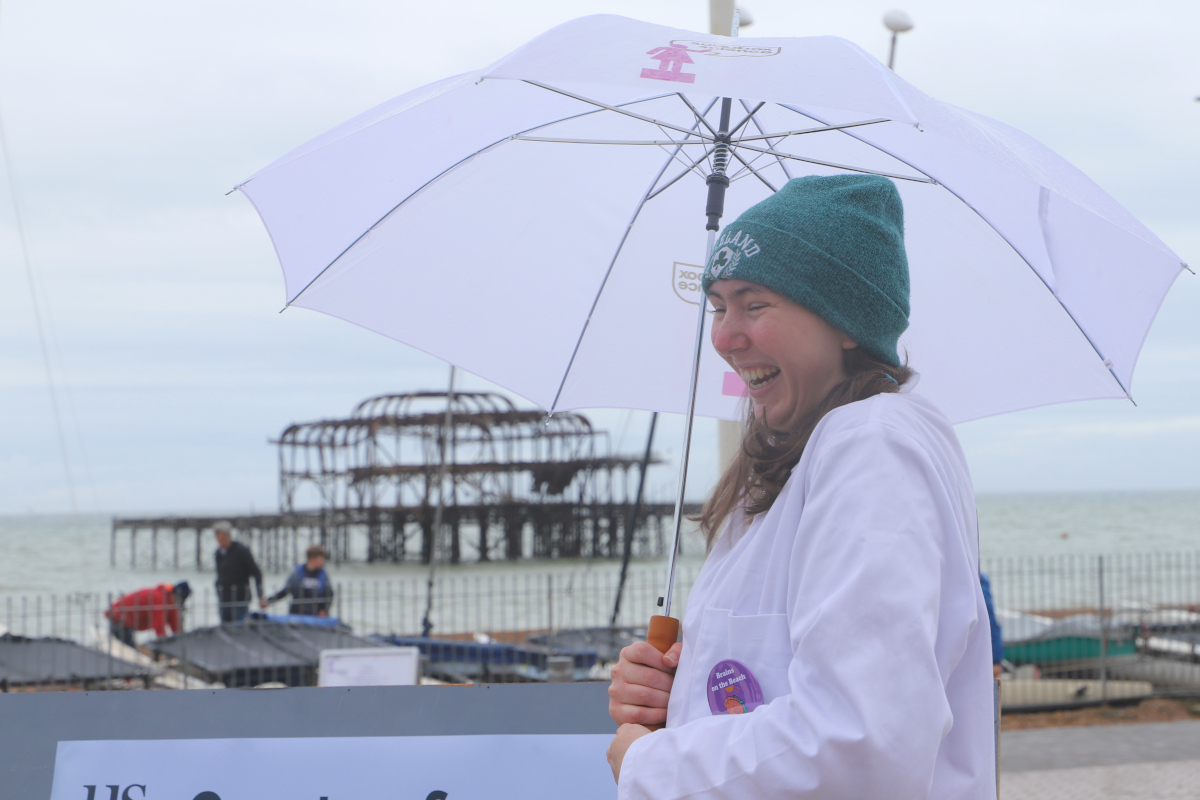
6 / 30
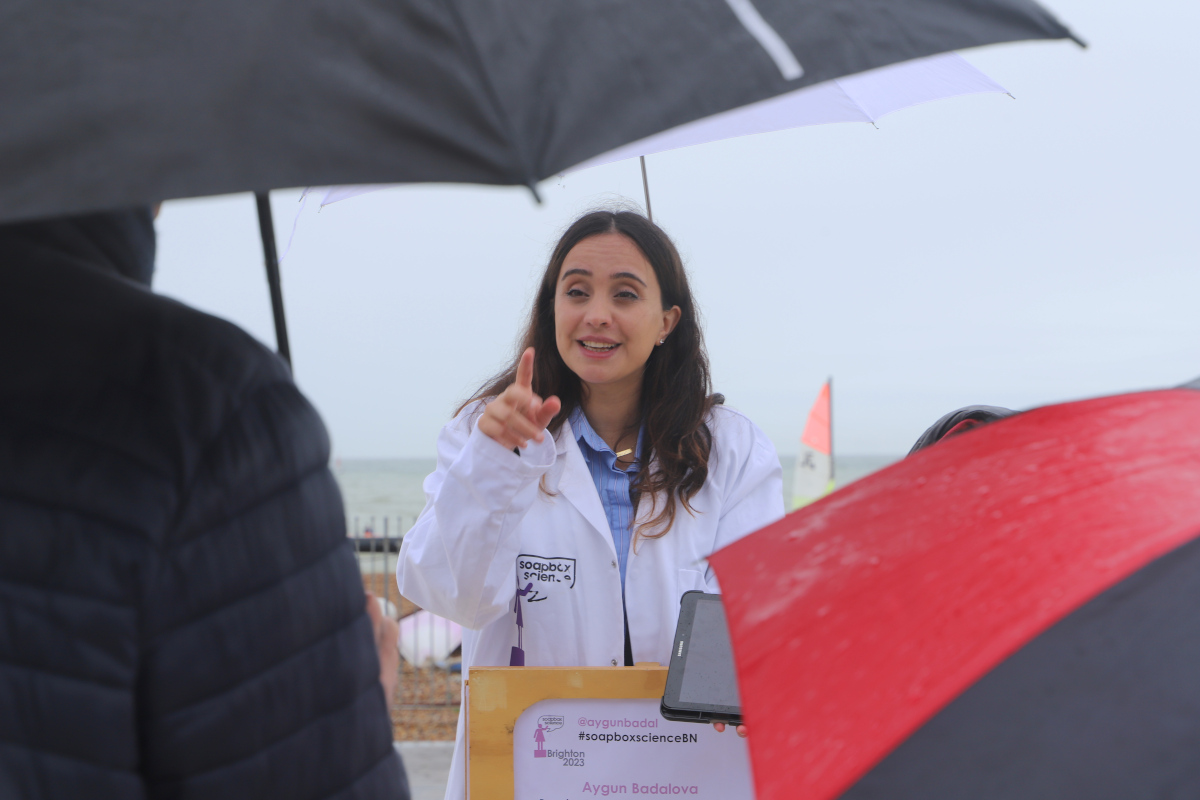
7 / 30
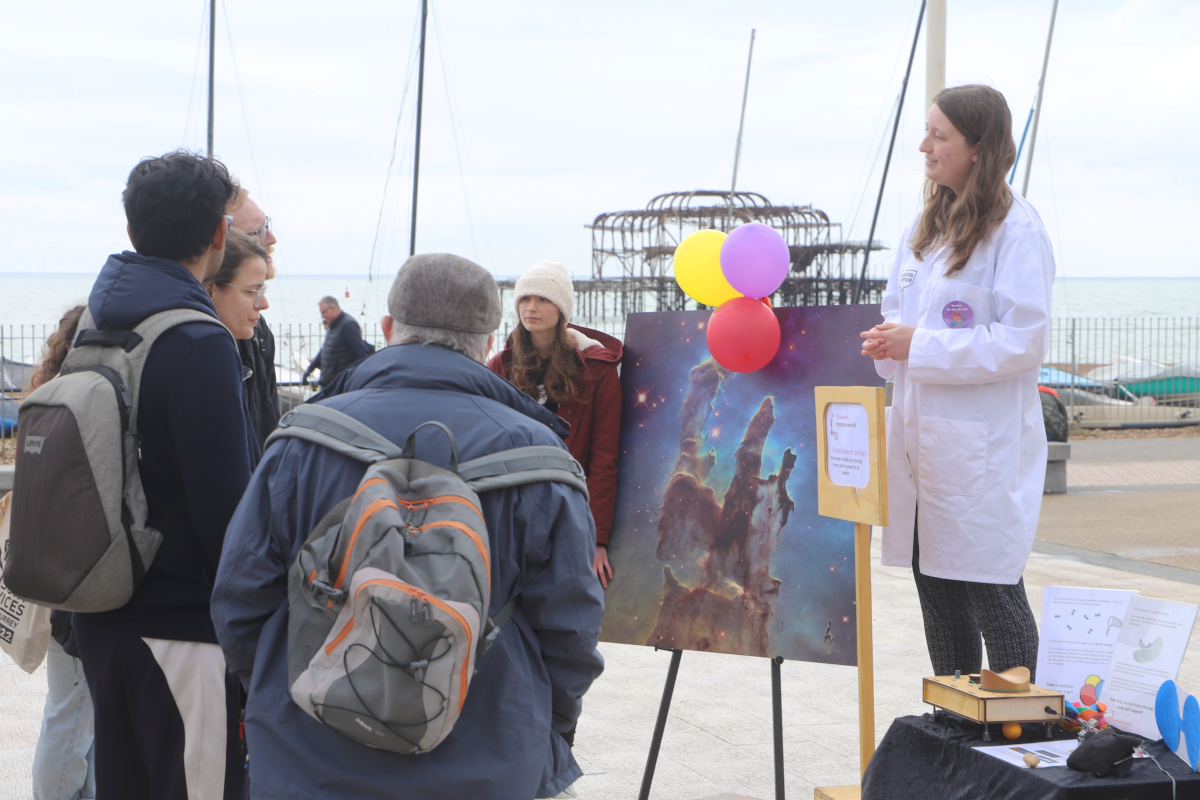
8 / 30
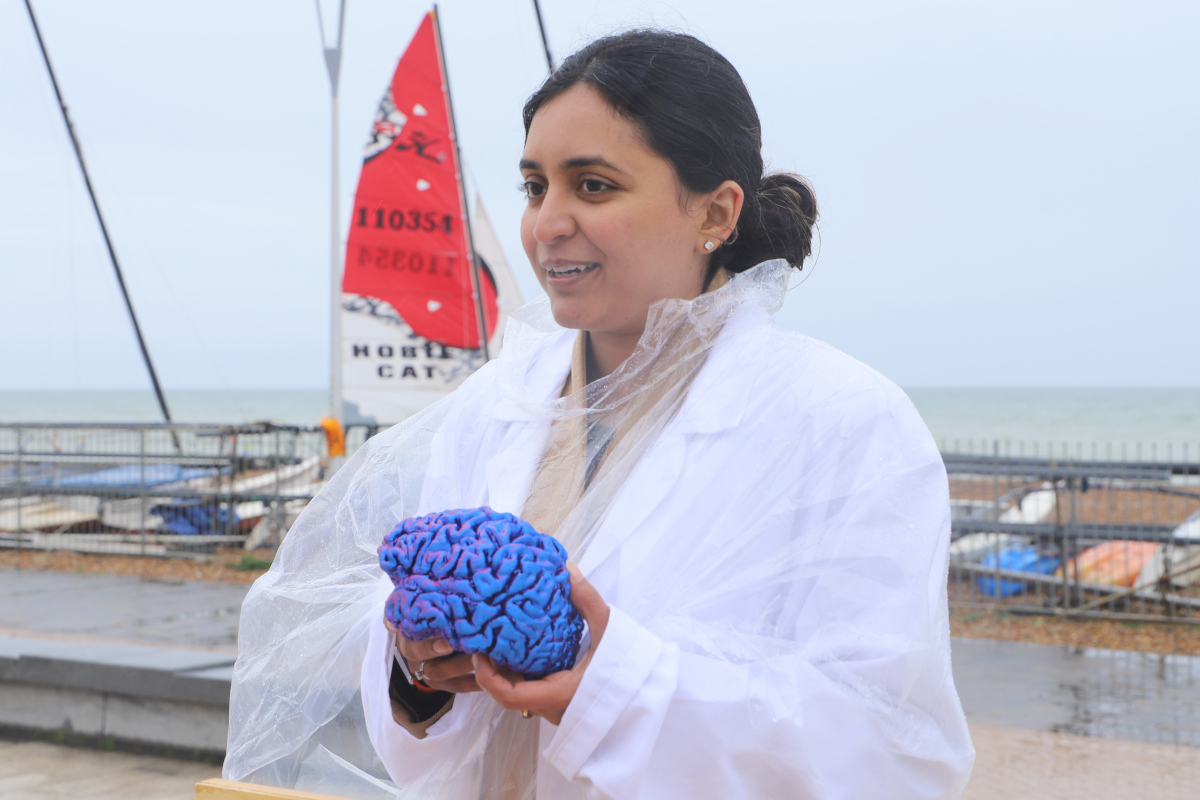
9 / 30
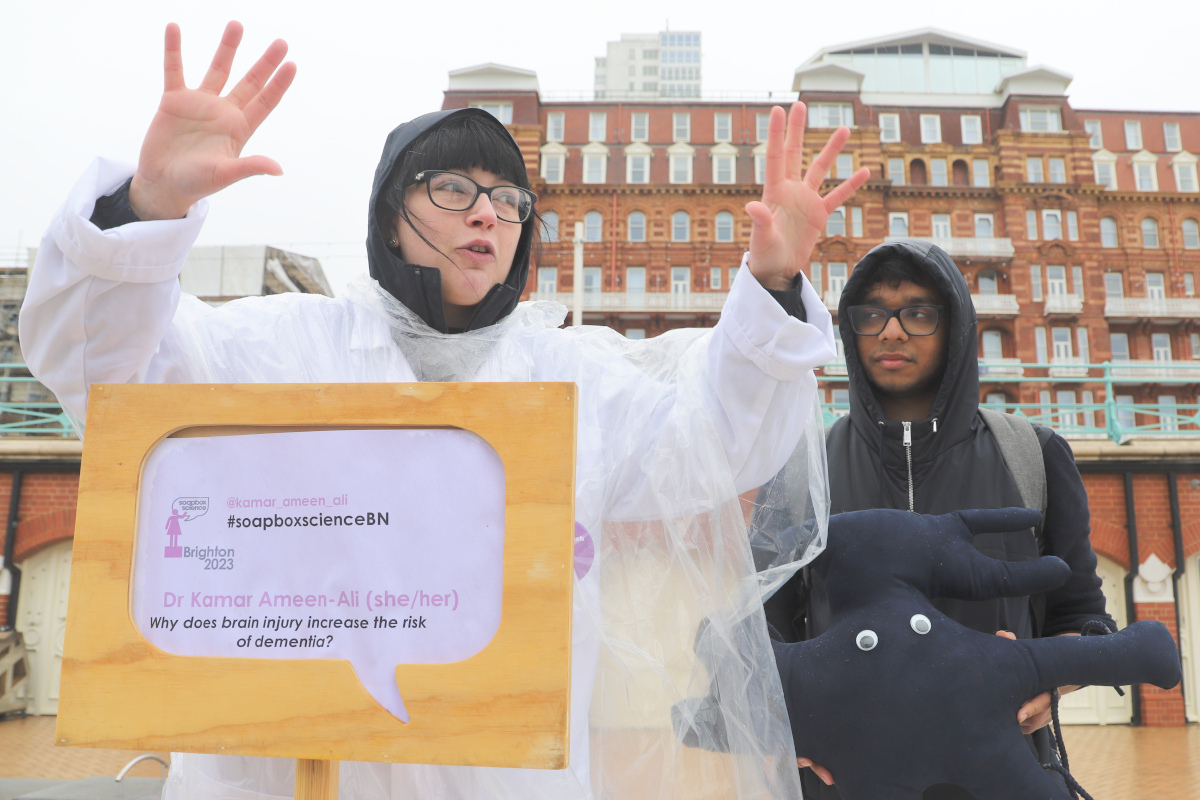
10 / 30
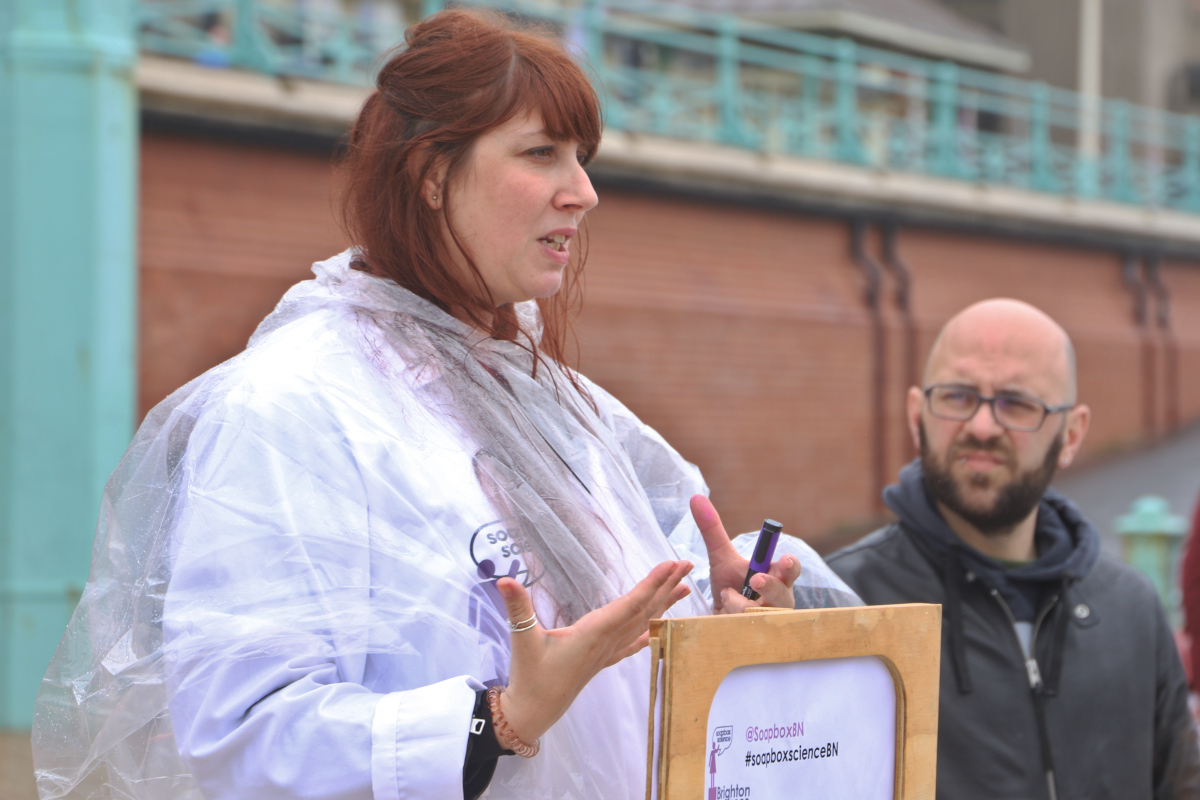
11 / 30
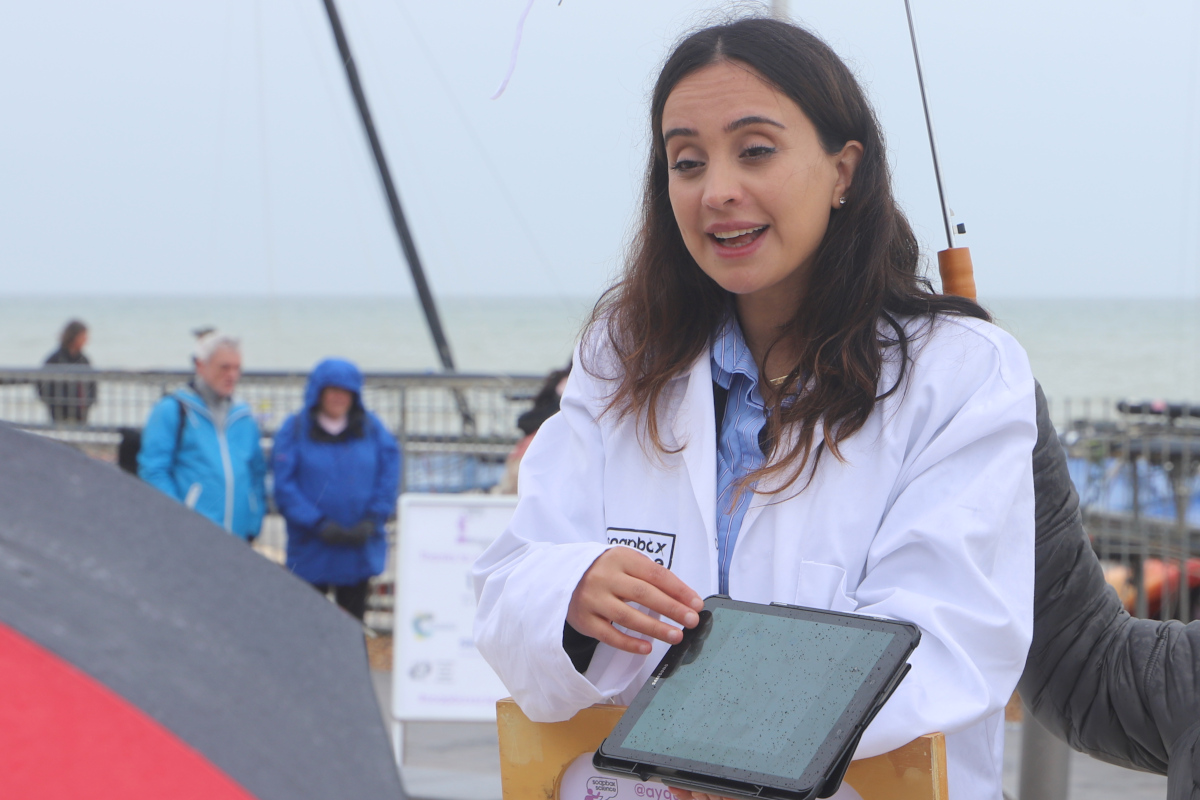
12 / 30
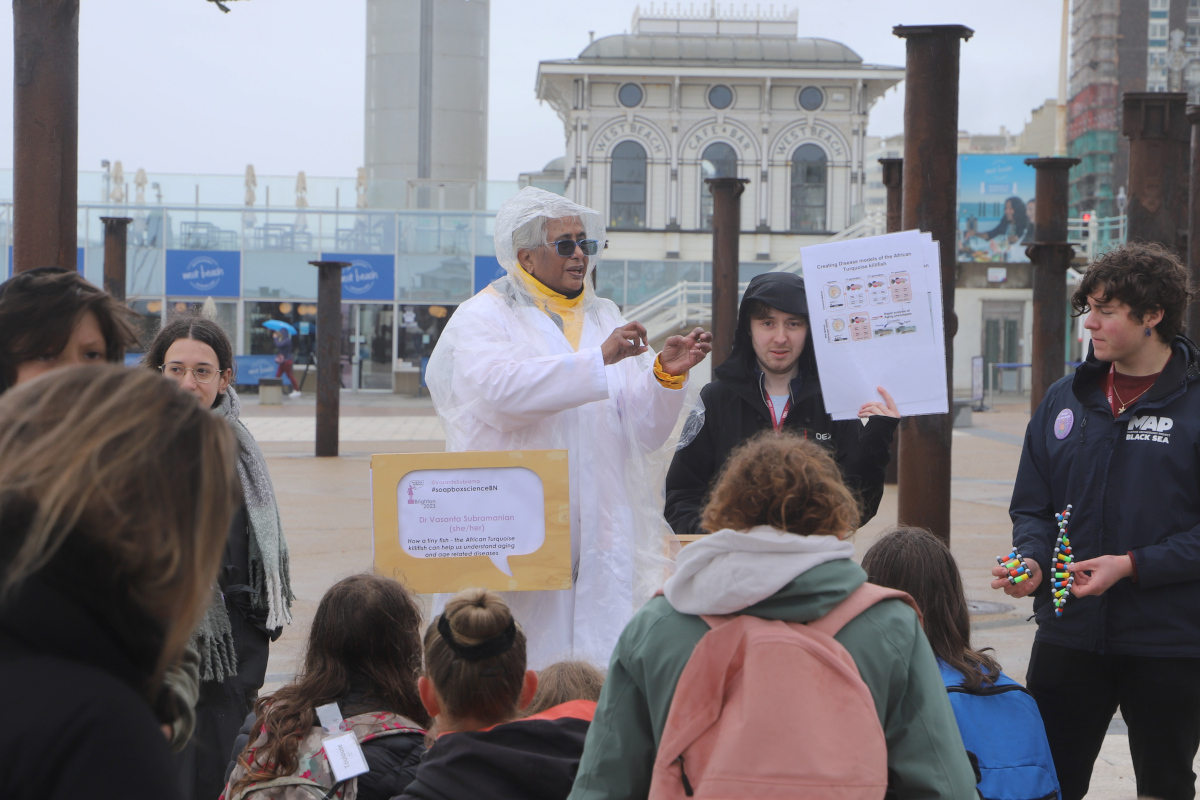
13 / 30
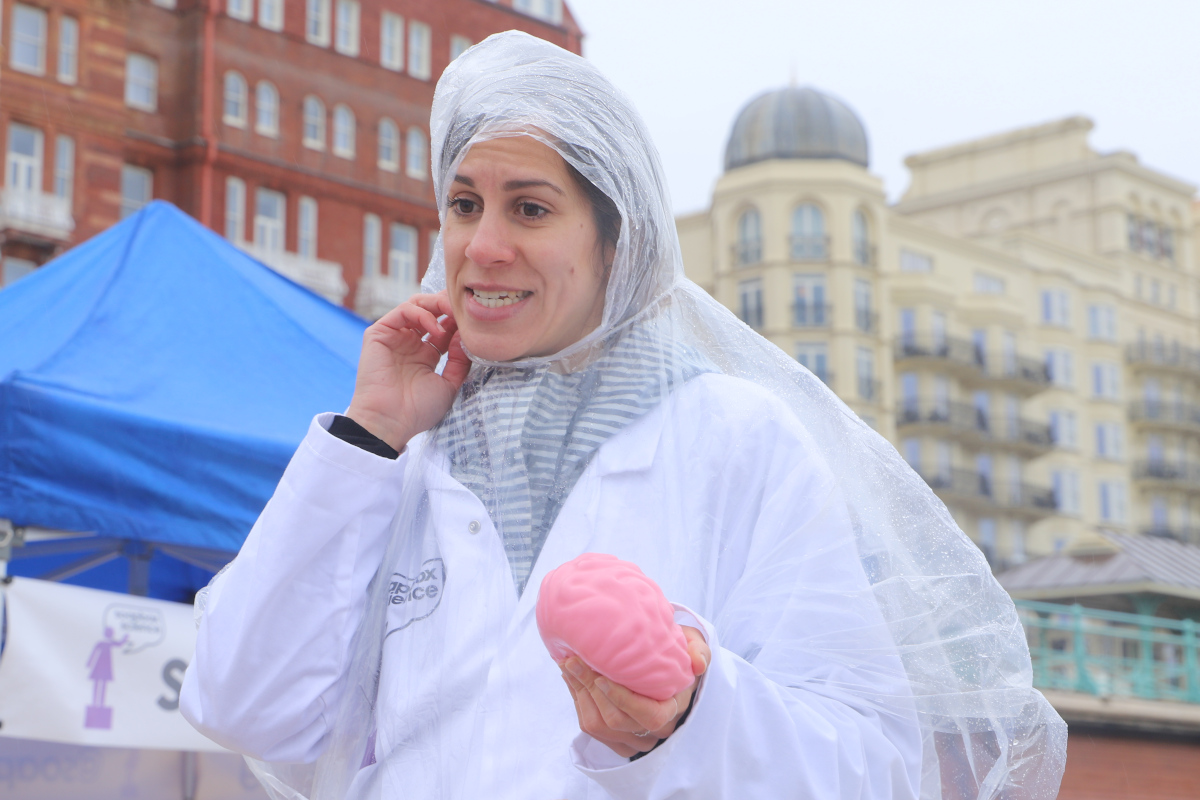
14 / 30
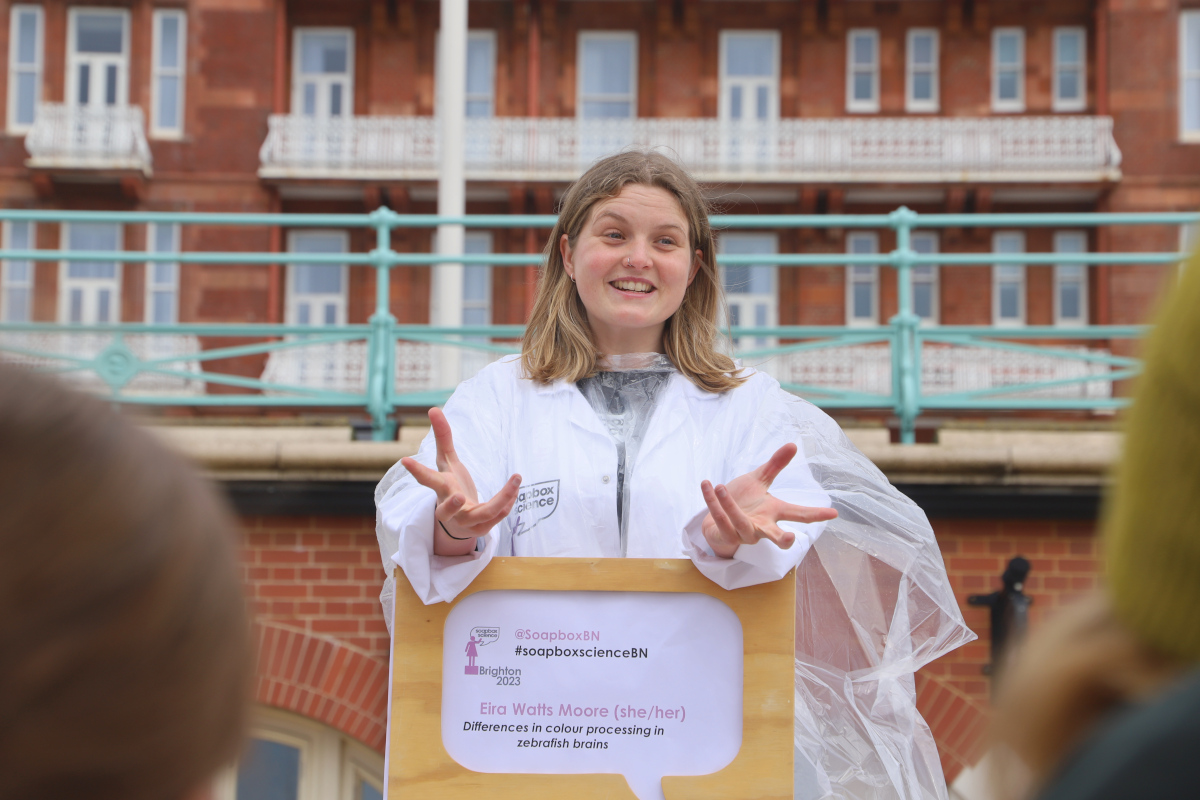
15 / 30
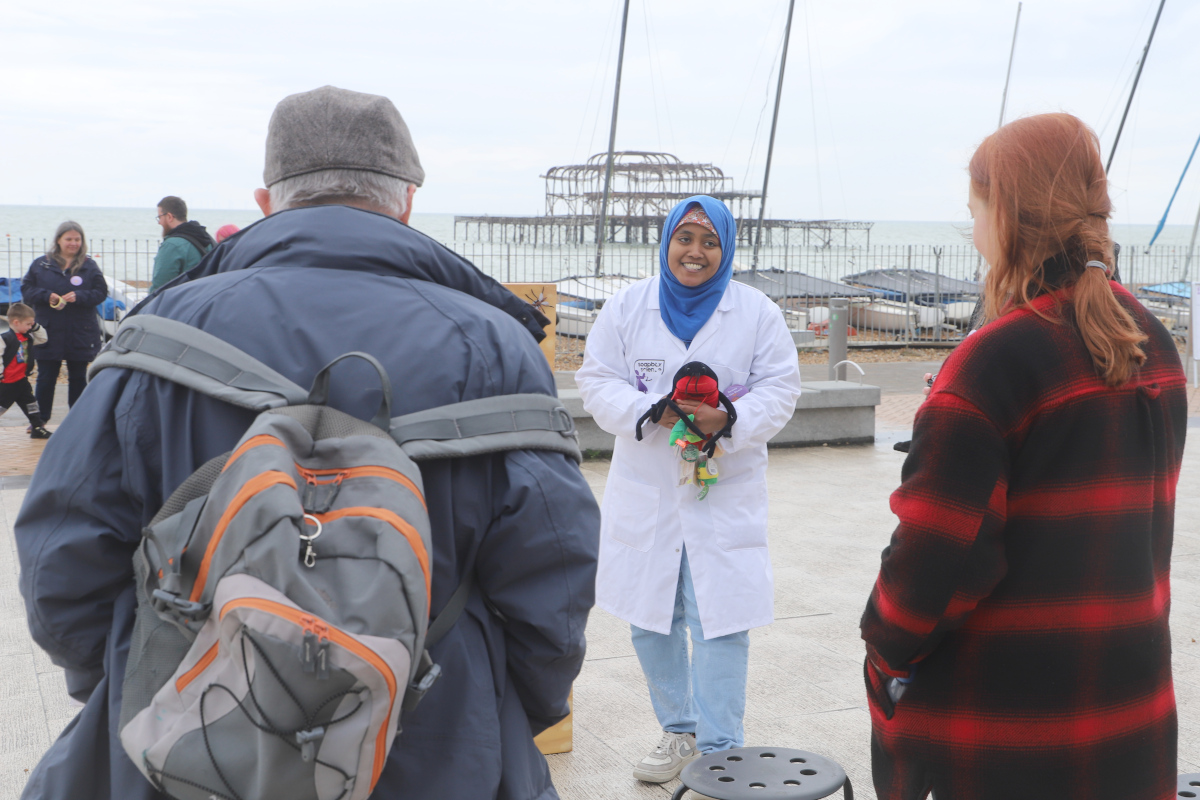
16 / 30
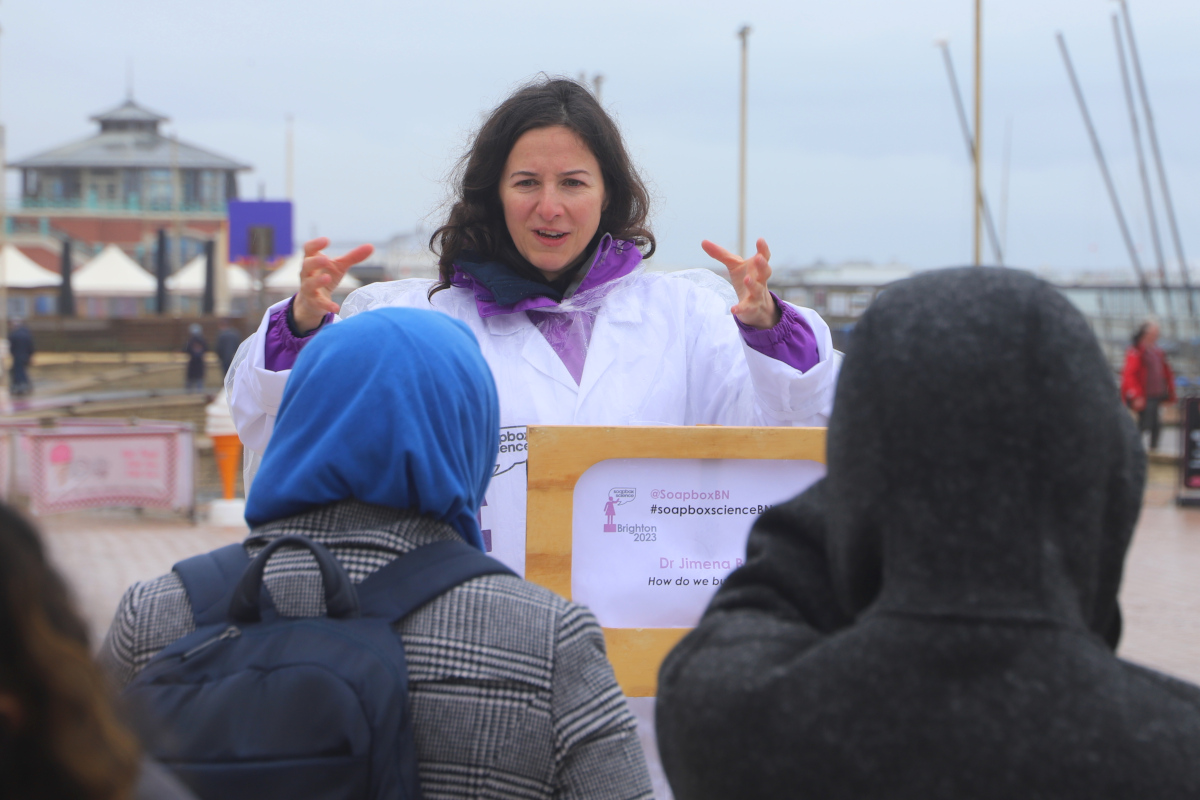
17 / 30
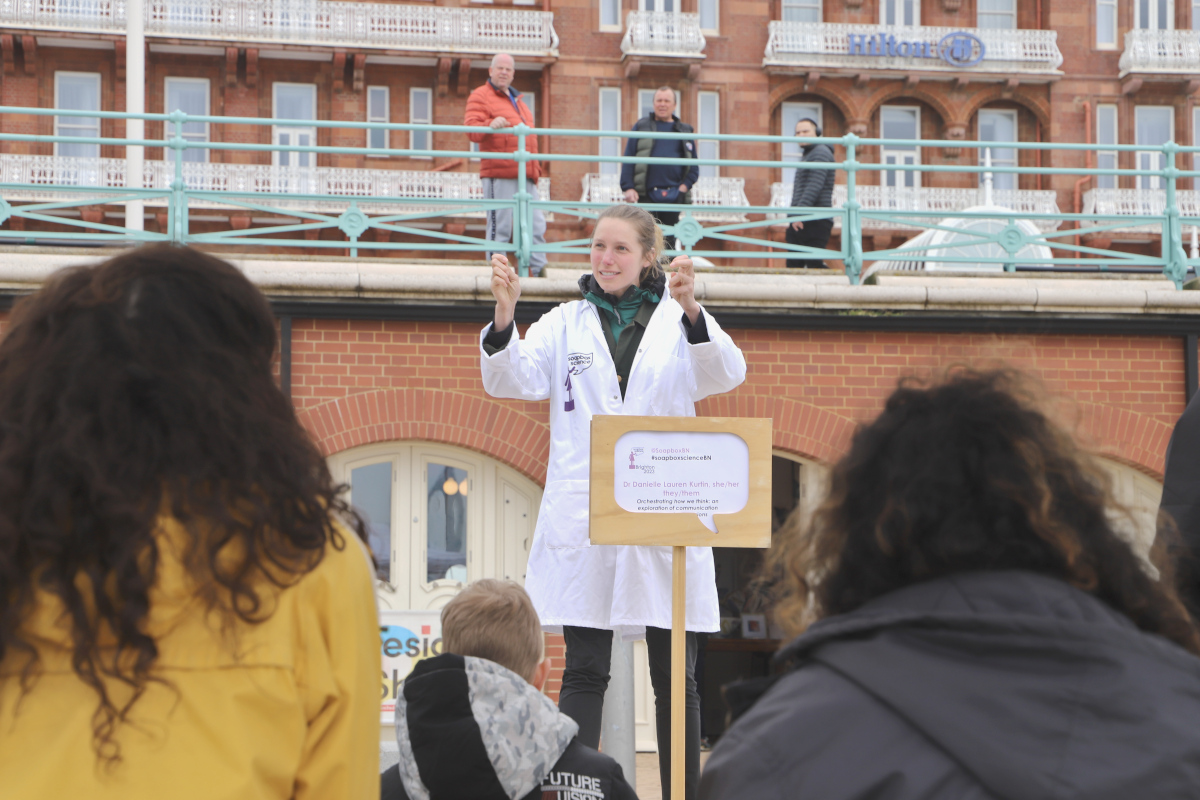
18 / 30
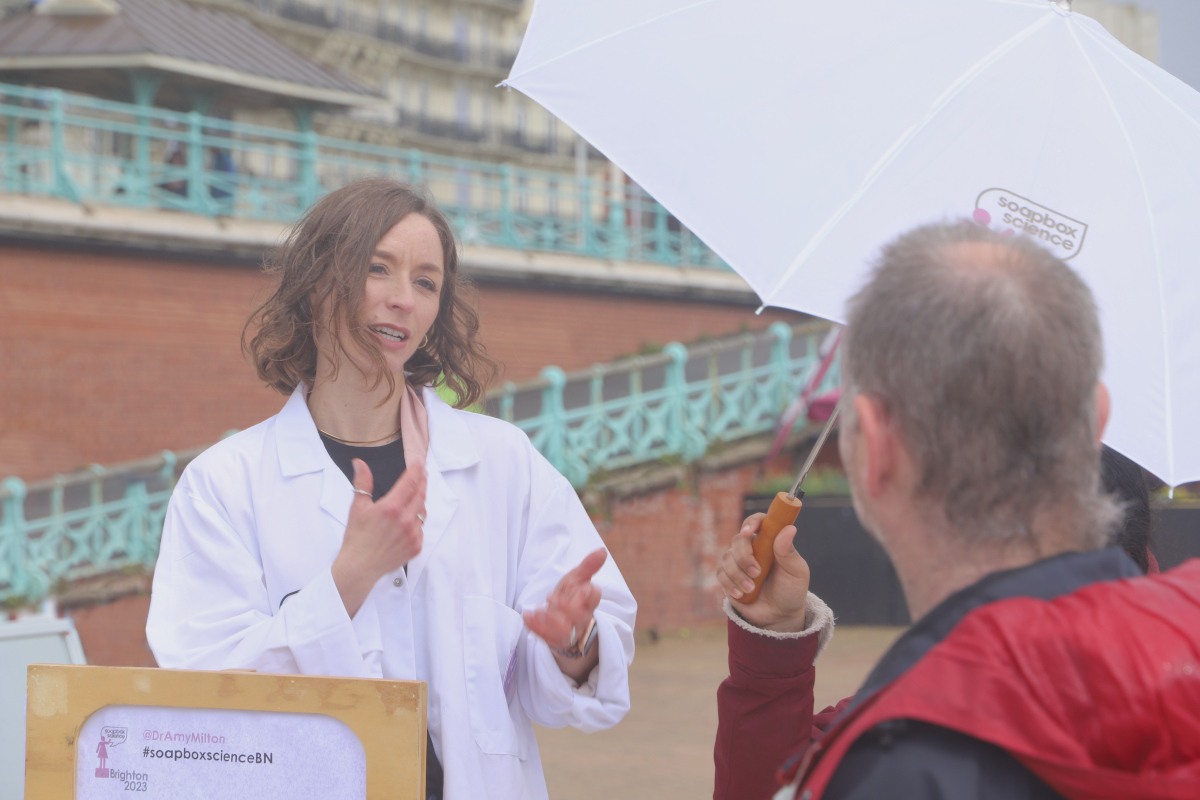
19 / 30
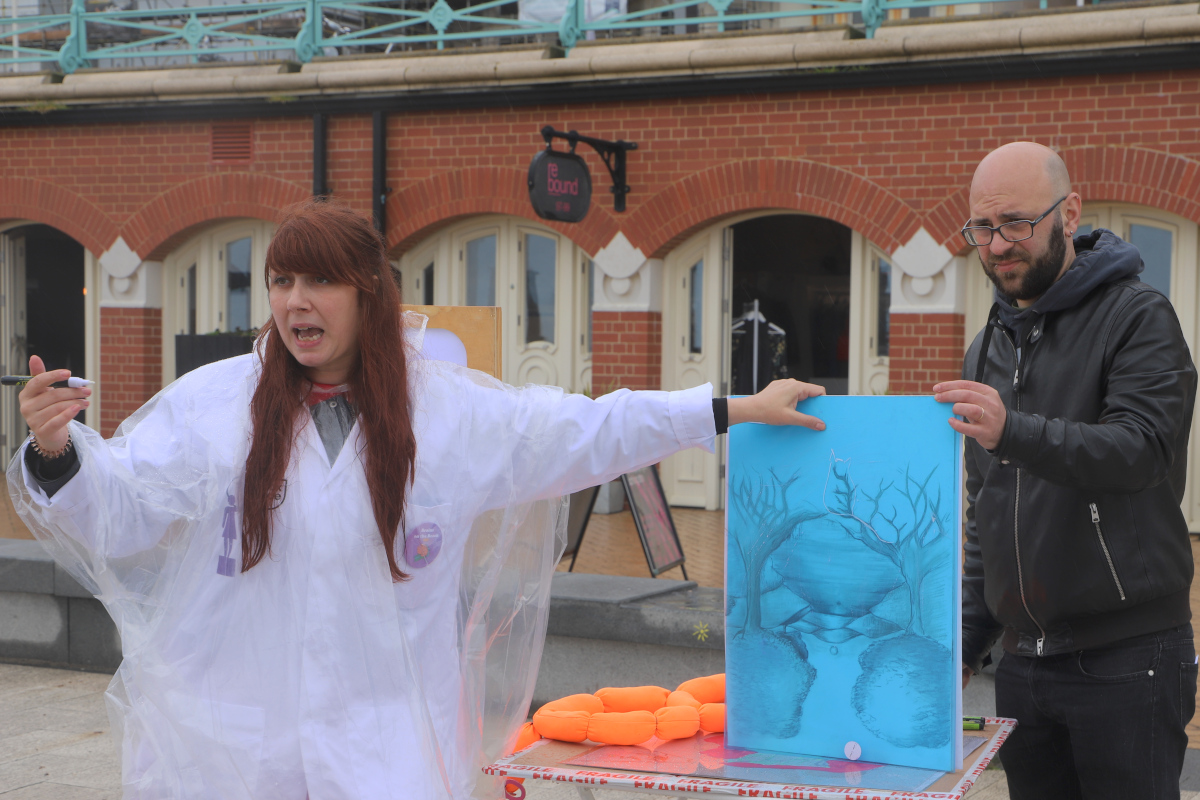
20 / 30
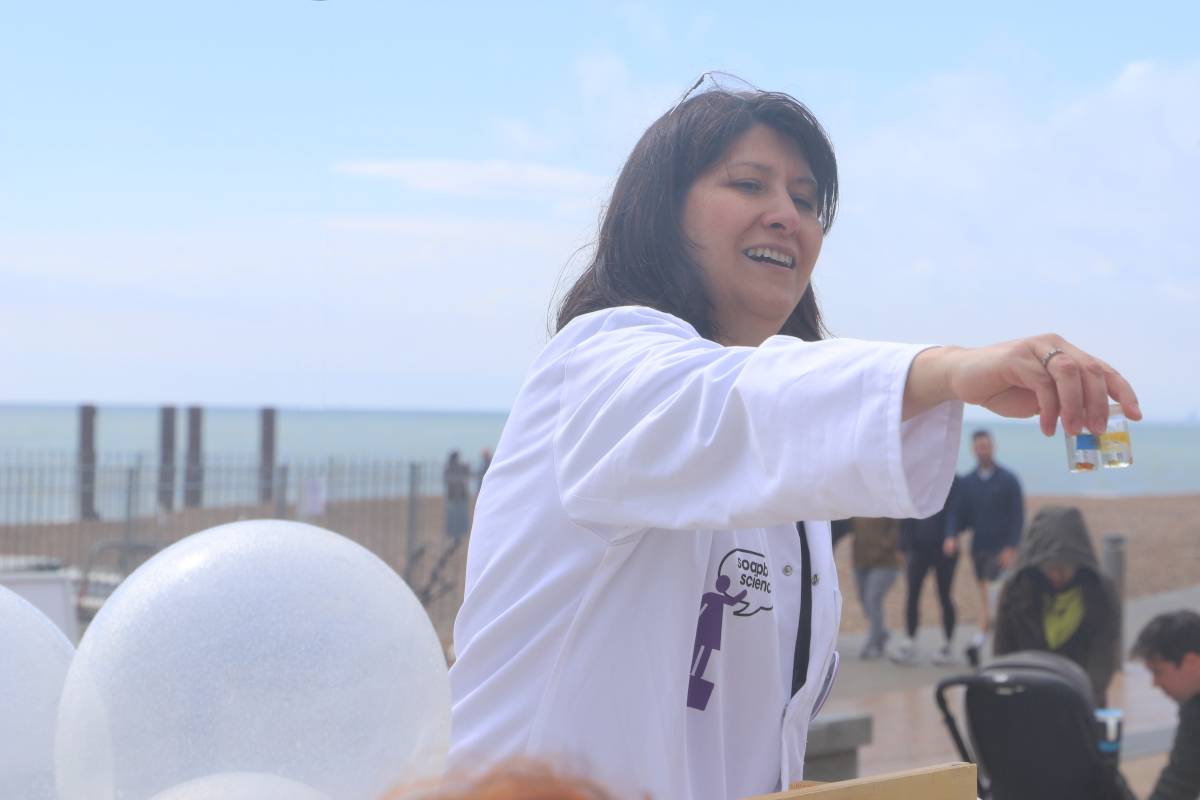
21 / 30
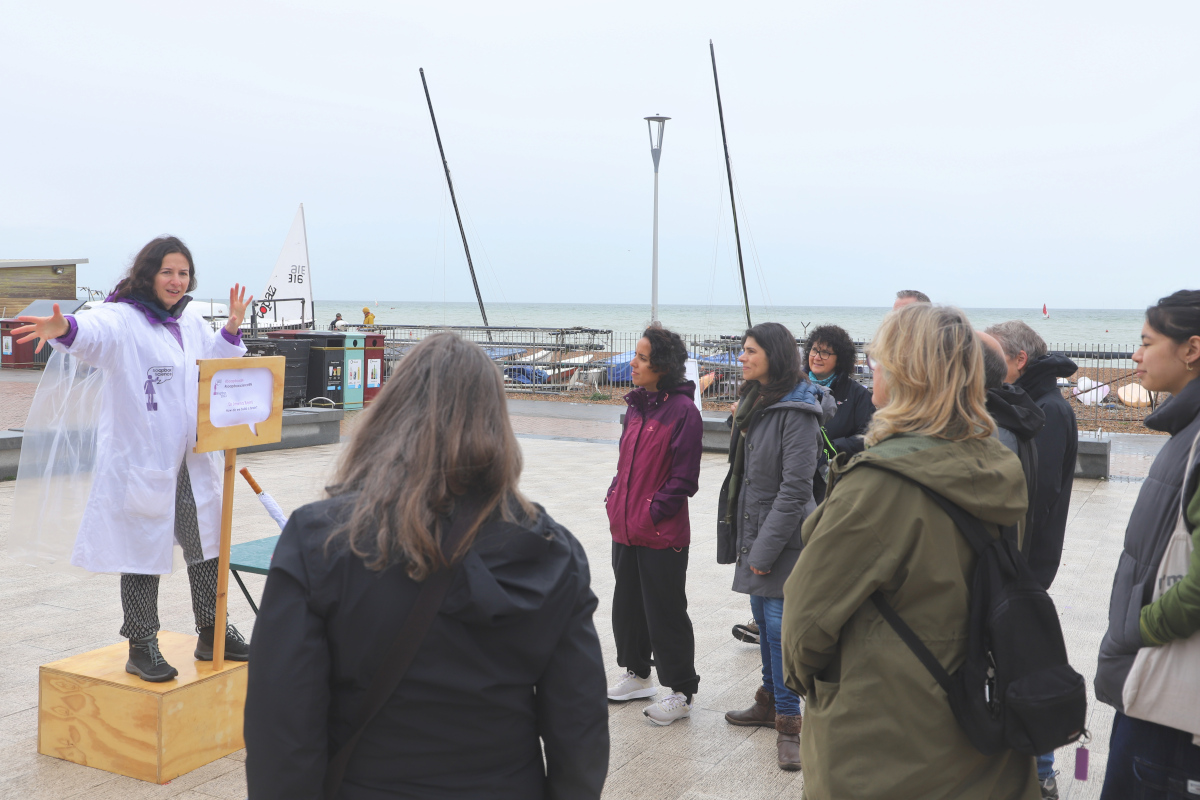
22 / 30
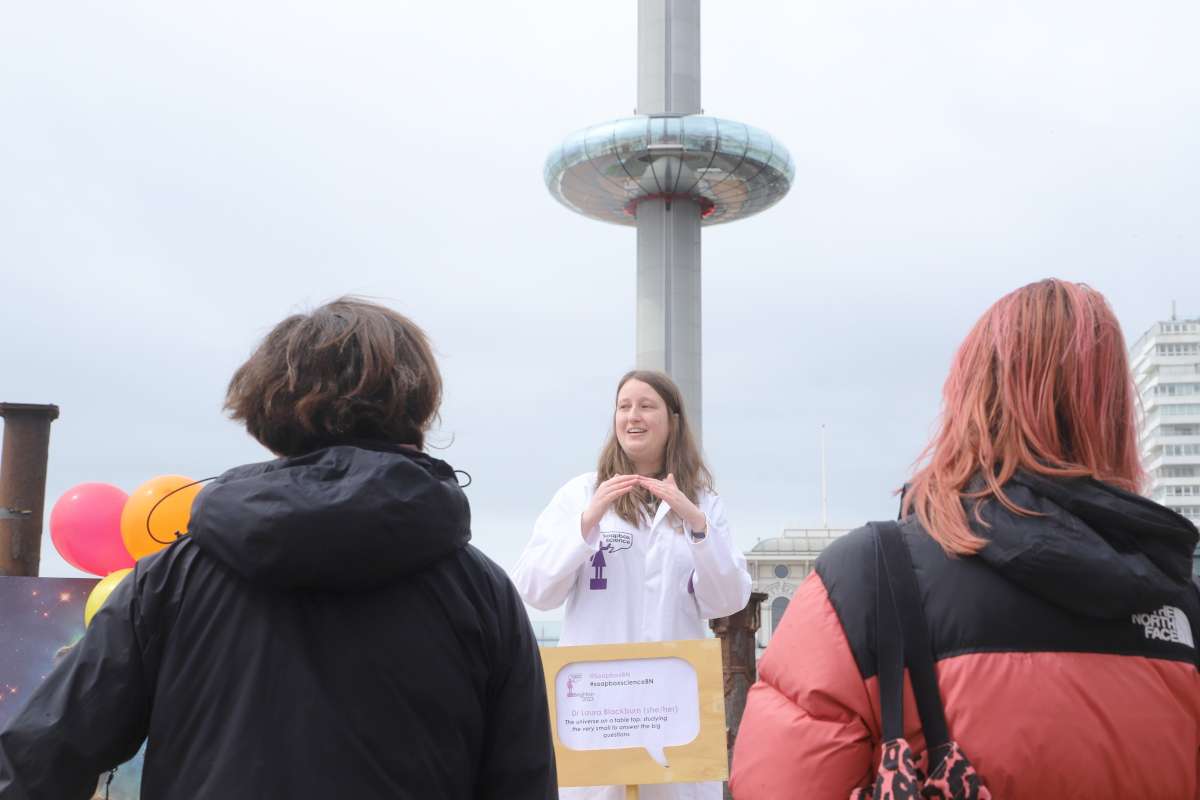
23 / 30
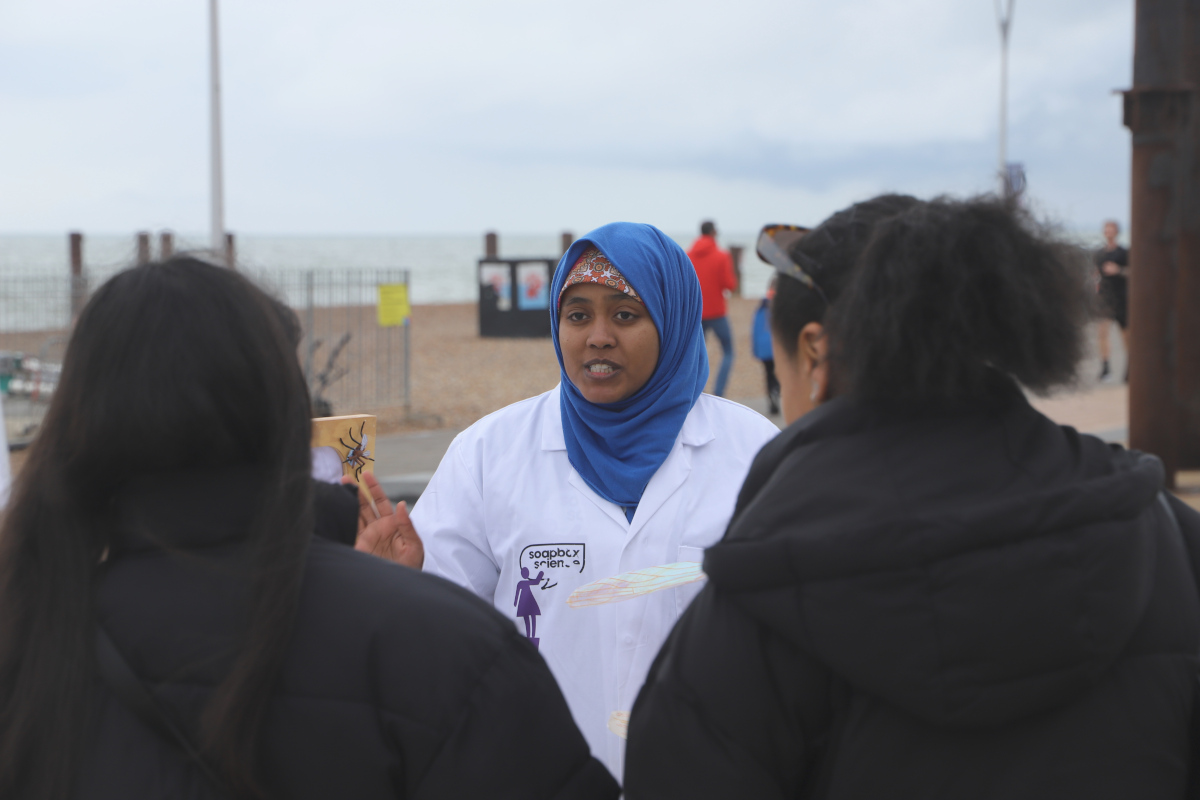
24 / 30
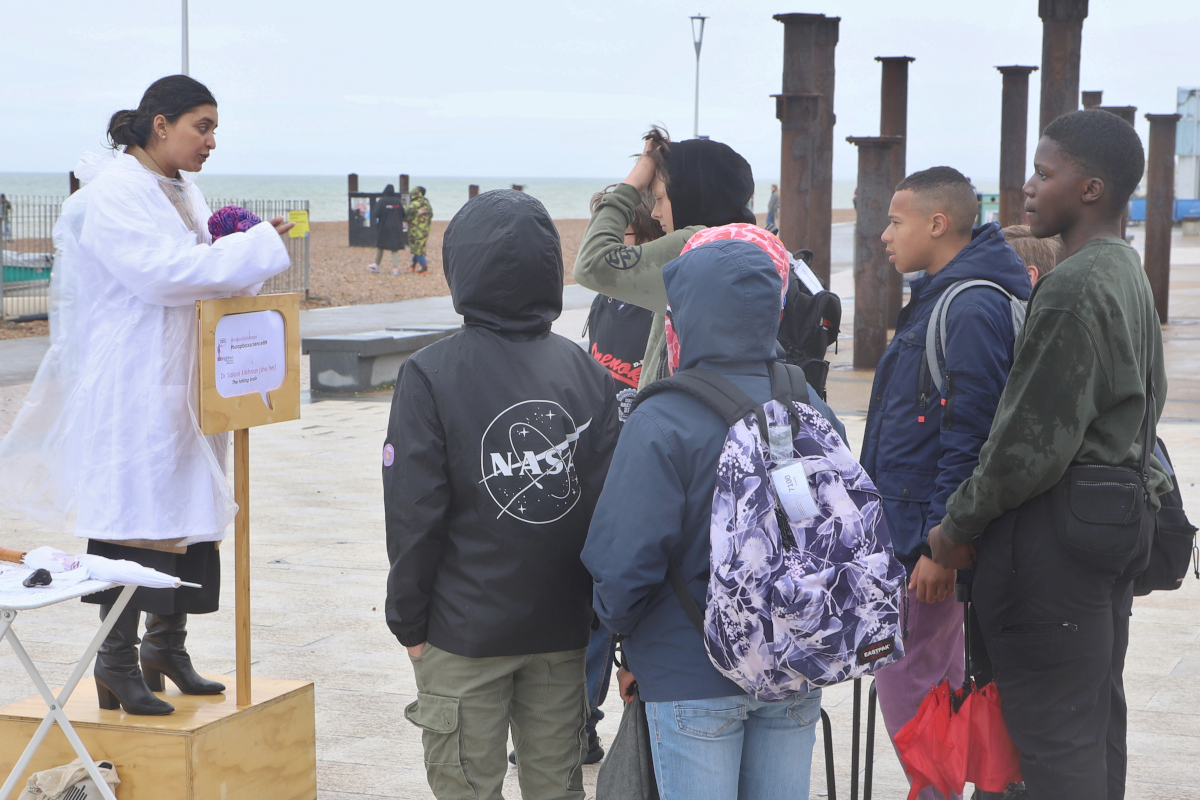
25 / 30
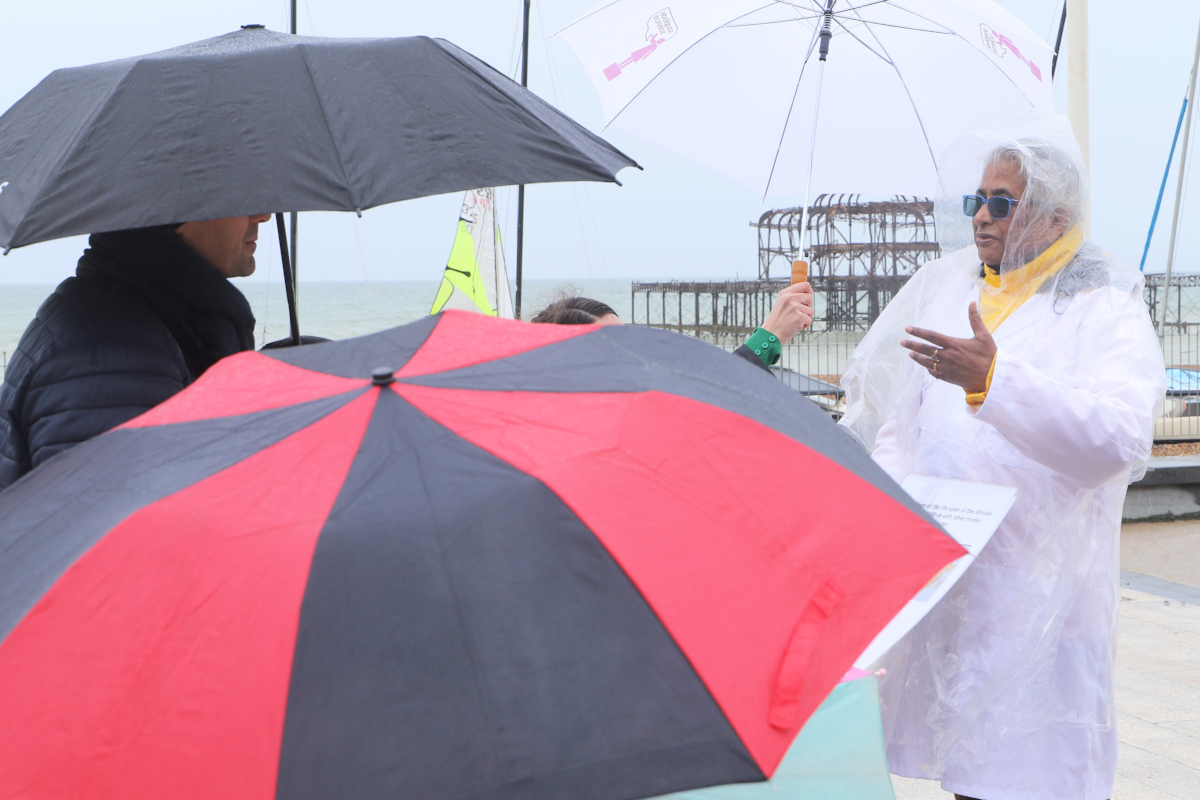
26 / 30
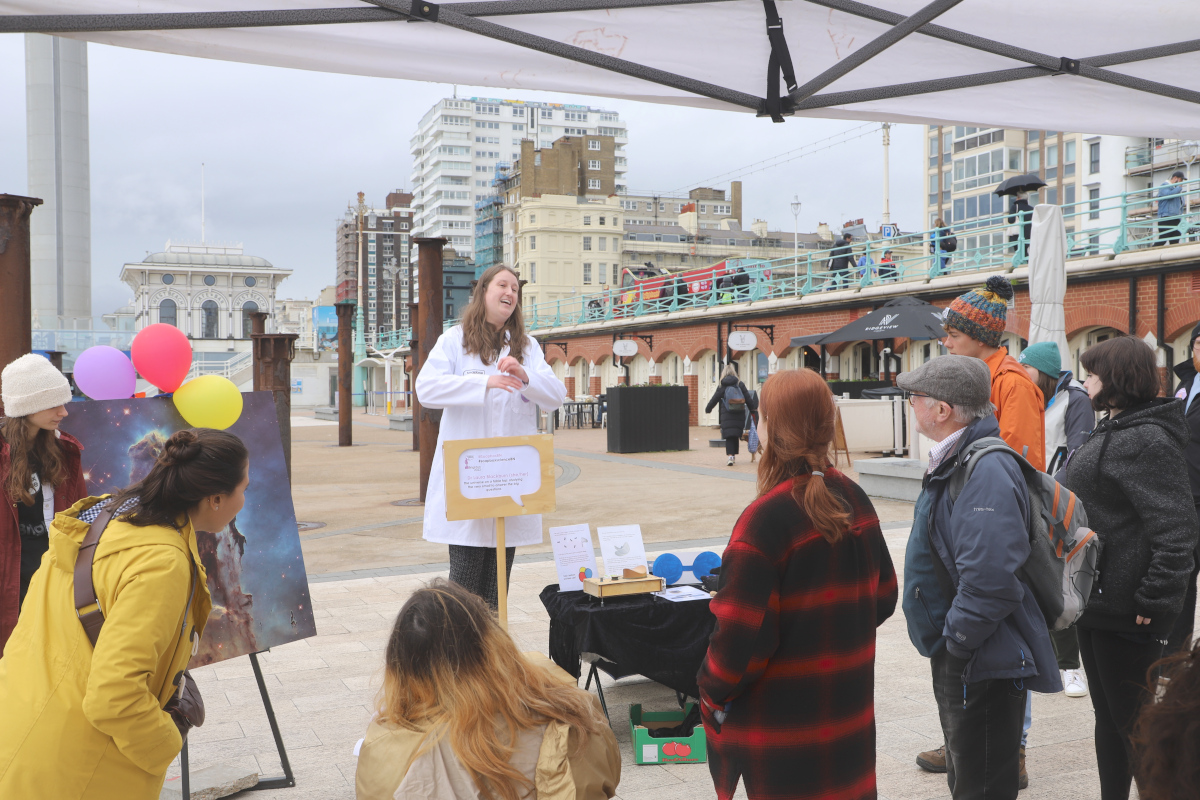
27 / 30
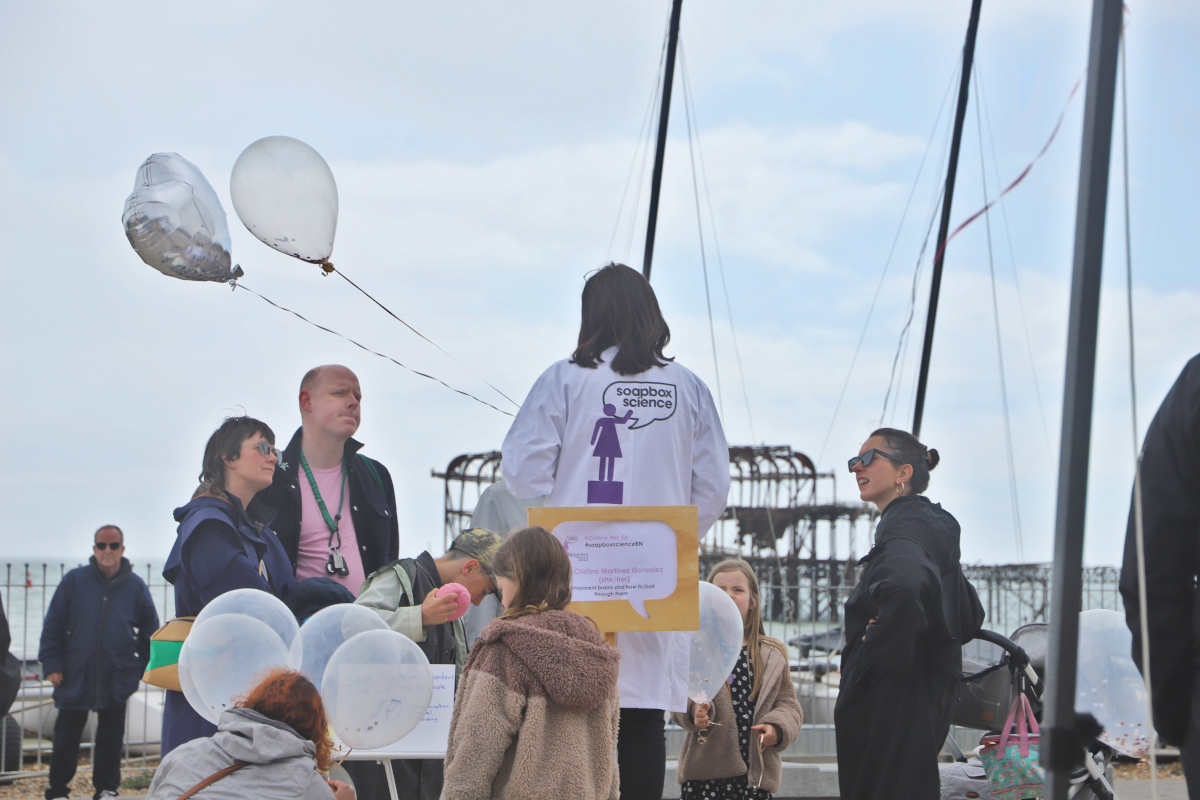
28 / 30
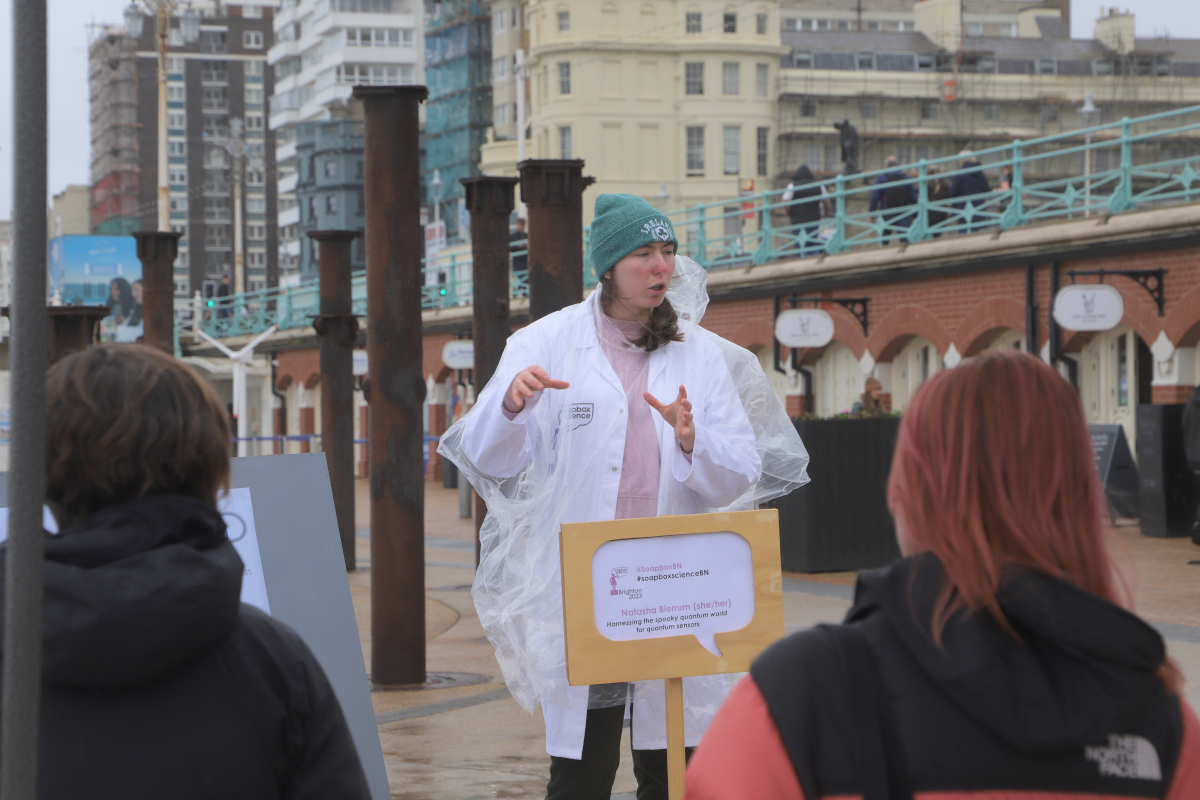
29 / 30
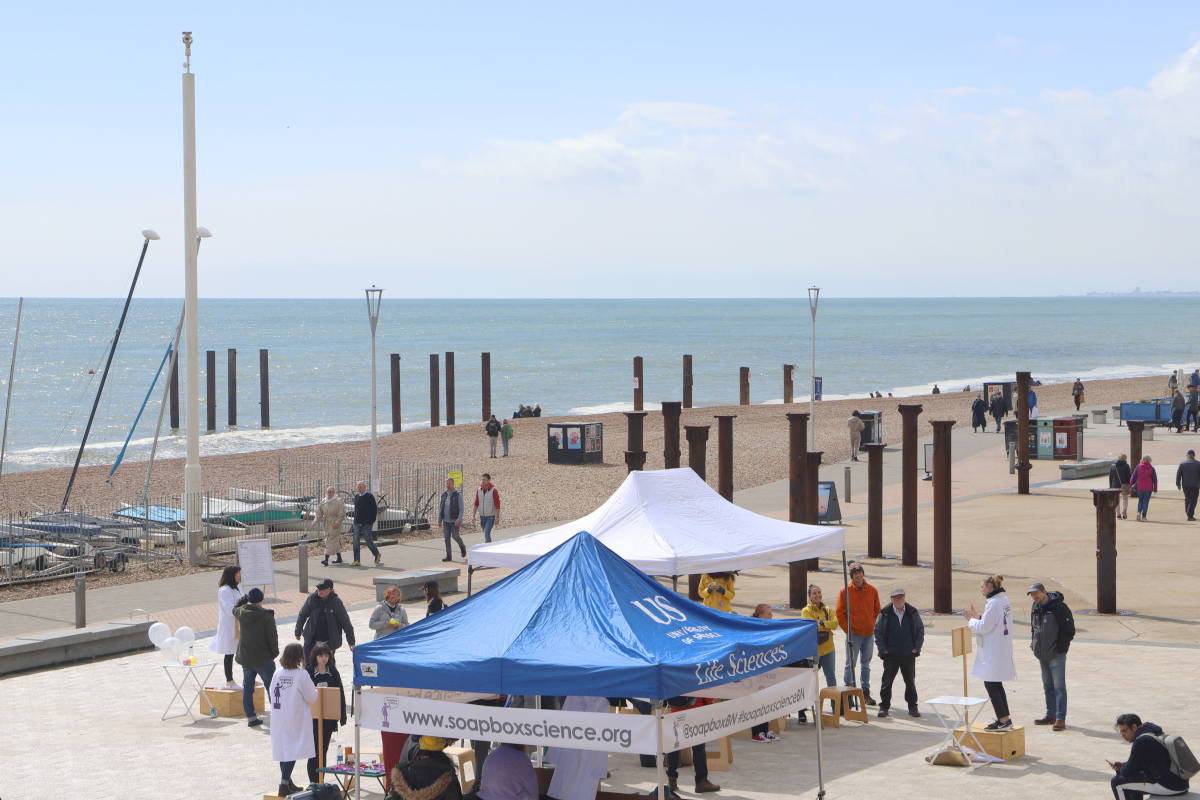
30 / 30
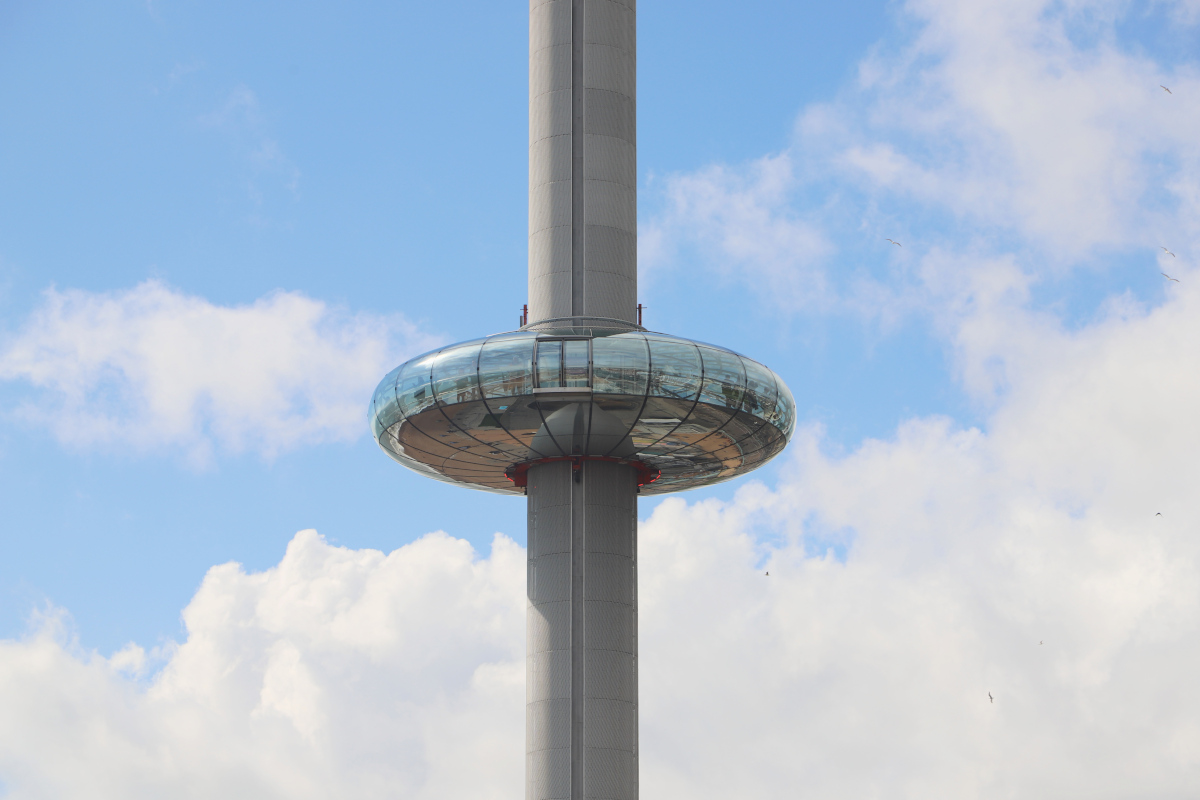
❮
❯
Photographs from Soapbox Science Brighton, 2023.
Speakers at Soapbox Science Brighton 2023
The following speakers presented at Soapbox Science Brighton 2023 on the 23rd April, 2023. Full details about all of our speakers can be found below the table (in first name alphabetical order), or by clicking on an individual's name.
|
Key
|
 | Profile page |
 | Research group/department page |
 | LinkedIn page |
 | ORCiD page |
 | Research Gate page |
 | Twitter feed |
|
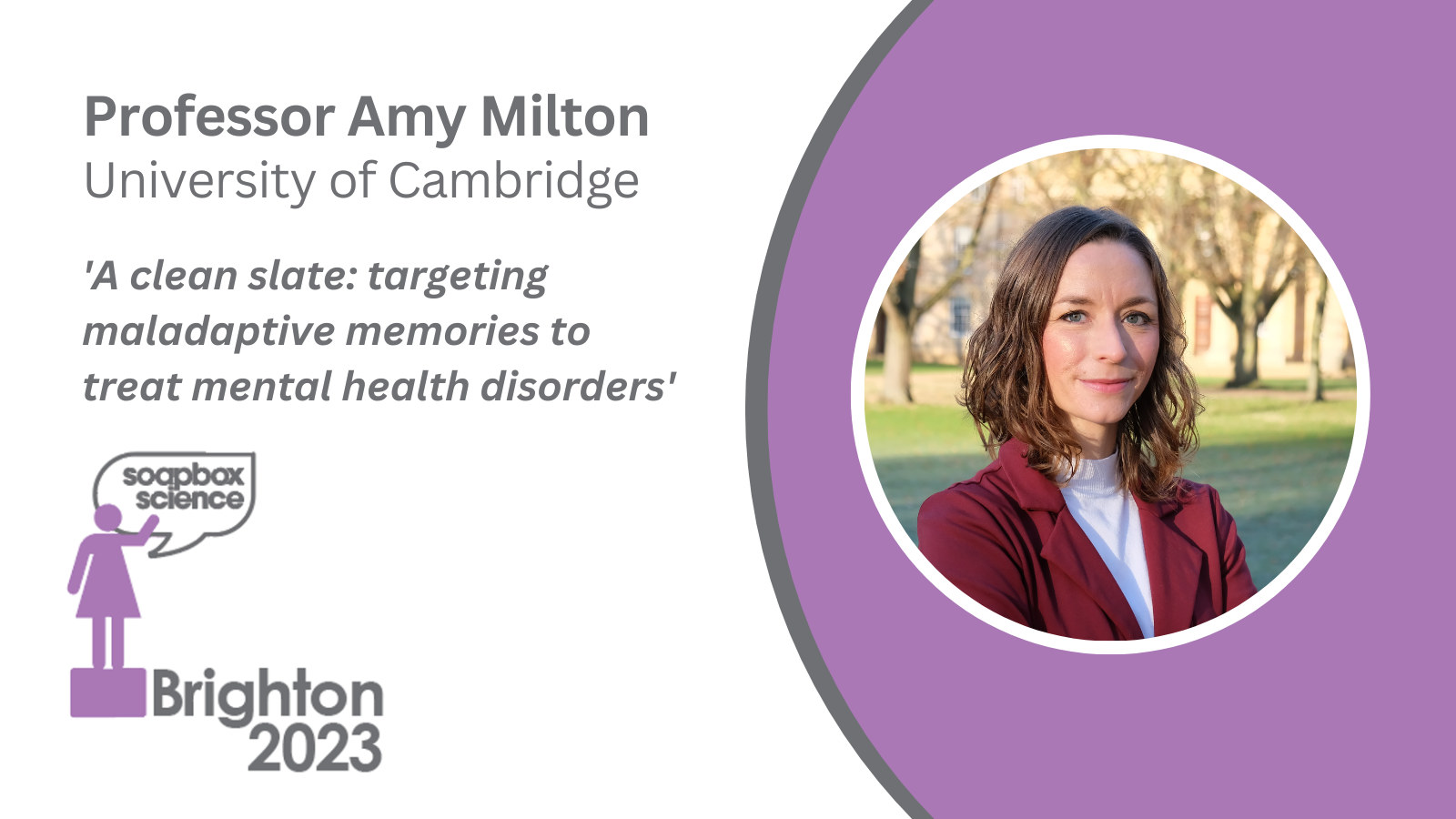
Amy is a University Professor in Behavioural Neuroscience in the Department of Psychology at the University of Cambridge, and Director of the Cambridge MiND (Memories in Neuropsychiatric Disorders) Lab. Her research focuses on the neurochemical and molecular mechanisms underlying memory reconsolidation, and their exploitation to develop new treatments for mental health disorders. She also has a strong interest in the development of translationally relevant models of mental health disorders, and facilitating dialogue between basic and clinical neuroscientists working in mental health. Amy's research, funded by the Medical Research Council, the Wellcome Trust and the Biotechnology and Biological Sciences Research Council, has applications to mental health disorders including drug addiction, post-traumatic stress disorder, and obsessive-compulsive disorder.
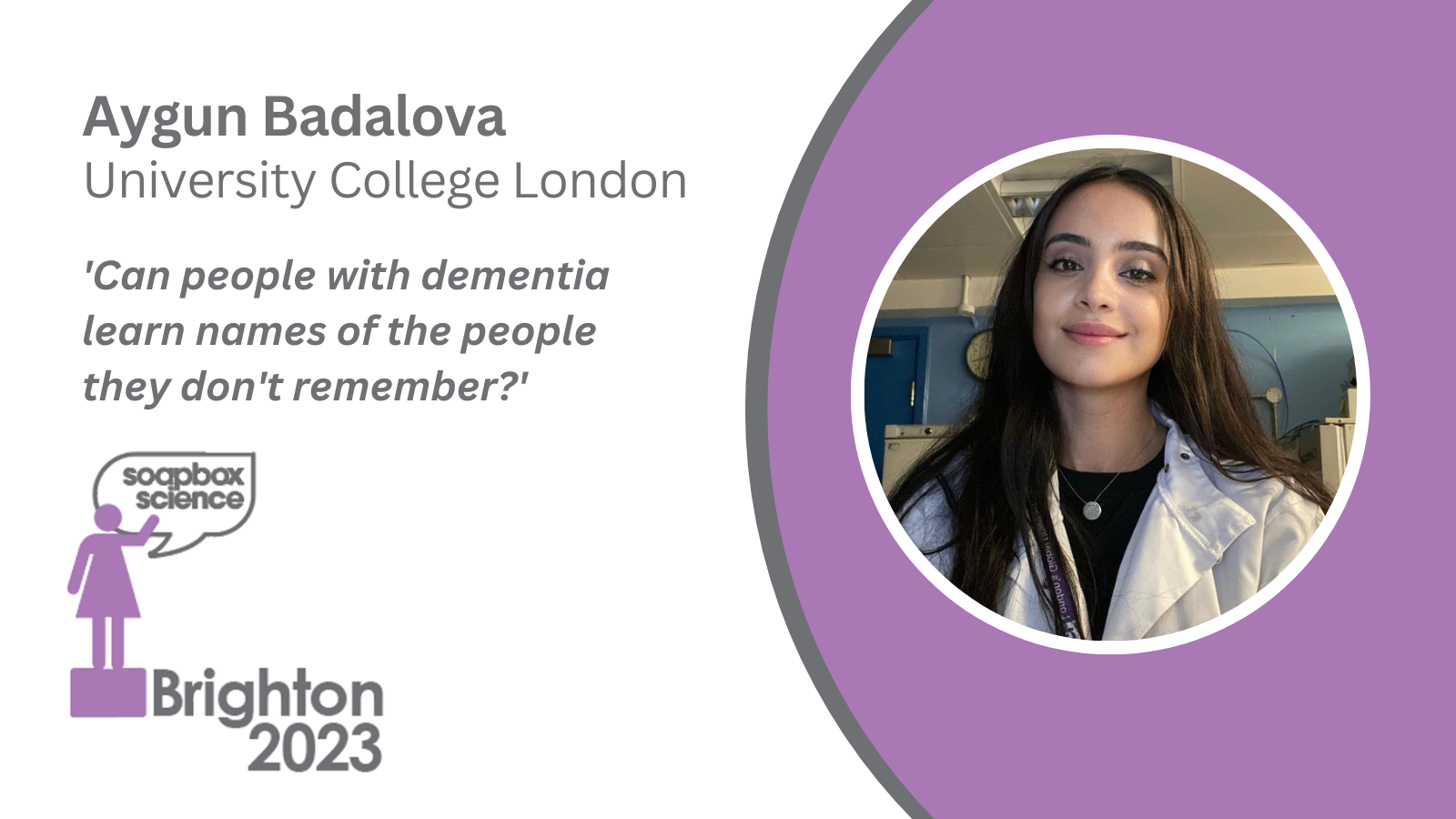
Aygun is a PhD student at the University College London with a background in neuropsychology and cognitive neuroscience. Her current research focuses on the development of Digital Interventions in Neuro-Rehabilitation (DINR) of Alzheimer's disease and Dementia. She has joined the lab where she works on the app called the Gotcha! - a name retrieval therapy app to help people with dementia remember the names of familiar people. Aygun is also doing clinical work at the National Hospital for Neurology and Neurosurgery (NHNN).

Cristina is a highly accomplished postdoctoral research fellow with a PhD in neurosciences from the world-renowned University of Oxford. Throughout her academic career, Dr Martinez-Gonzalez has established herself as a leader in neuroscience.
Dr Martinez-Gonzalezâ's work investigates rodent models of autism spectrum disorders (ASD) by making the brain transparent (optical tissue-clearing and light-sheet microscopy). Her expertise in this area is unparalleled, having developed new tissue clearing, immunohistochemical protocols and viral manipulation strategies in rodents. In addition to these innovative techniques, her diverse skill set includes confocal microscopy, anatomy, stereotaxic surgery, and molecular biology.
Throughout her career, Dr Martinez-Gonzalez has demonstrated an unwavering commitment to advancing our understanding of ASD and other neurological disorders. Her contributions to the field are not only significant but have the potential to be truly transformative. Dr Martinez Gonzalez's selected publications include research articles in Nature Neurosciences, Brain, and Neuron. Dr Martinez Gonzalez is an exceptional researcher who will continue to be influential in the scientific community for years to come.
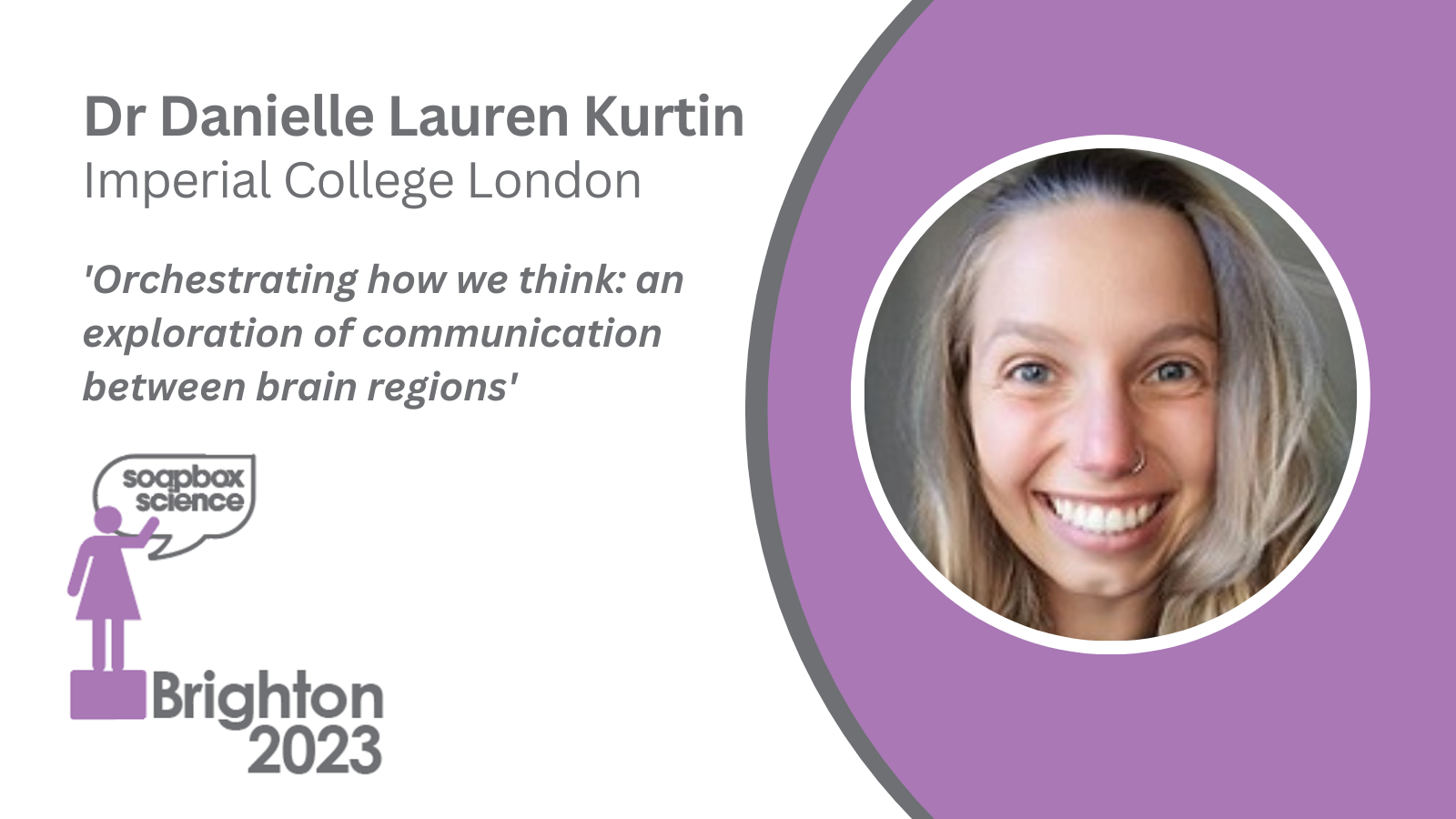
Originally from a small fishing town in Florida, Danielle first began researching the brain as an intern at the Netherlands Institute for Neuroscience, where she investigated how Deep Brain Stimulation attenuated symptoms of Obsessive Compulsive Disorder. Fascinated with the clinical potential of brain stimulation, she then completed her MSc in Translational Neuroscience at Imperial College London. There she investigated how the effects of noninvasive brain stimulation on brain function change depending on when stimulation was delivered. The realisation that stimulating the same brain region had opposing effects depending on whether a participant played a task or sat quietly inspired further investigation. She then spent her PhD at the University of Surrey evaluating methods that characterised brain connectivity reconfigurations and how they subserve behaviour and cognition. Danielle recently submitted her thesis and is continuing her research as a member of the Interventional Systems Neuroscience group at Imperial College London.
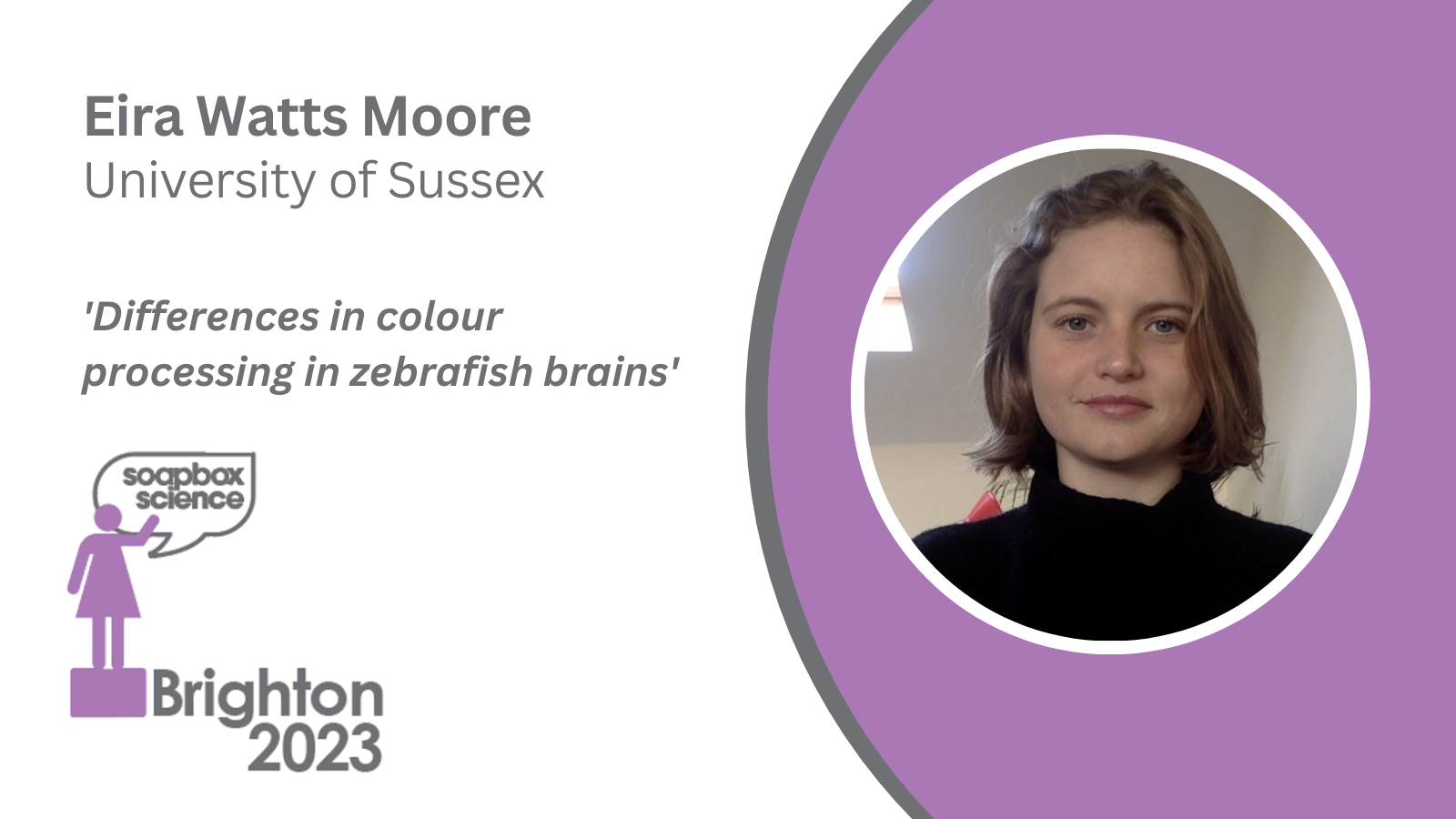
Eira Watts Moore


Differences in colour processing in zebrafish brains
Presentation slot:
1pm-2pm
Eira is a neuroscience PhD student in the School of Life Sciences at the University of Sussex. She works in the Baden Lab looking at colour processing in the brains of zebrafish.
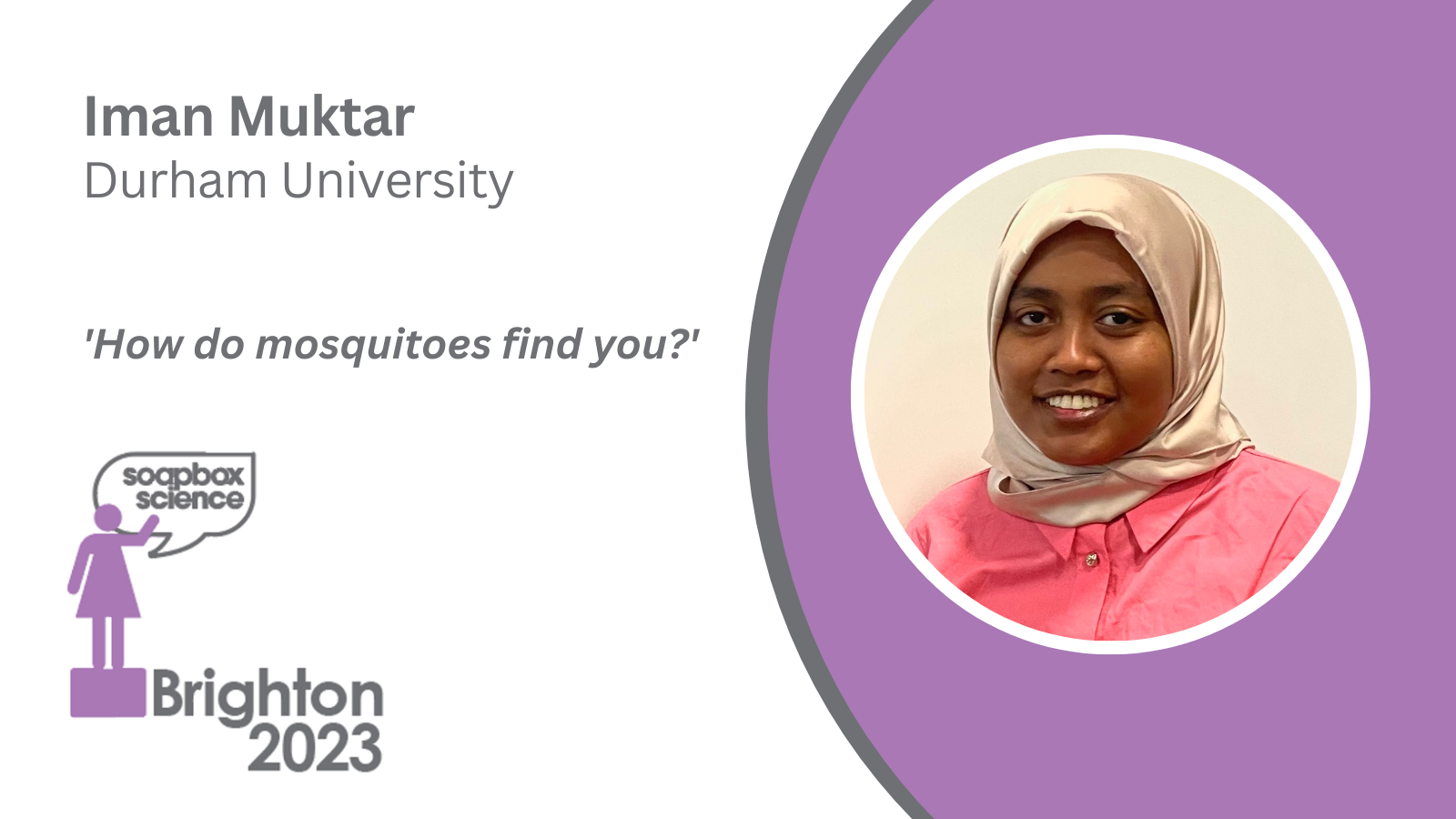
Iman undertook her MBiol in Biosciences at Durham University, working on bumblebee brains and investigating the dimorphism of the olfactory organ that processes odours and conspecific pheromones between the different species of Bombus around Durham, UK. Following this degree she continued to develop her experimental neuroscience skills, securing a 4-month research assistant position to work on a project investigating olfactory coding in Anopheles gambiae mosquitoes at the Insect Neuro lab in Durham. . She then was awarded the BBSRC NLD DTP PhD studentship, and started a PhD in October 2022. To continue her work on the olfactory coding of larval and adult mosquitoes.
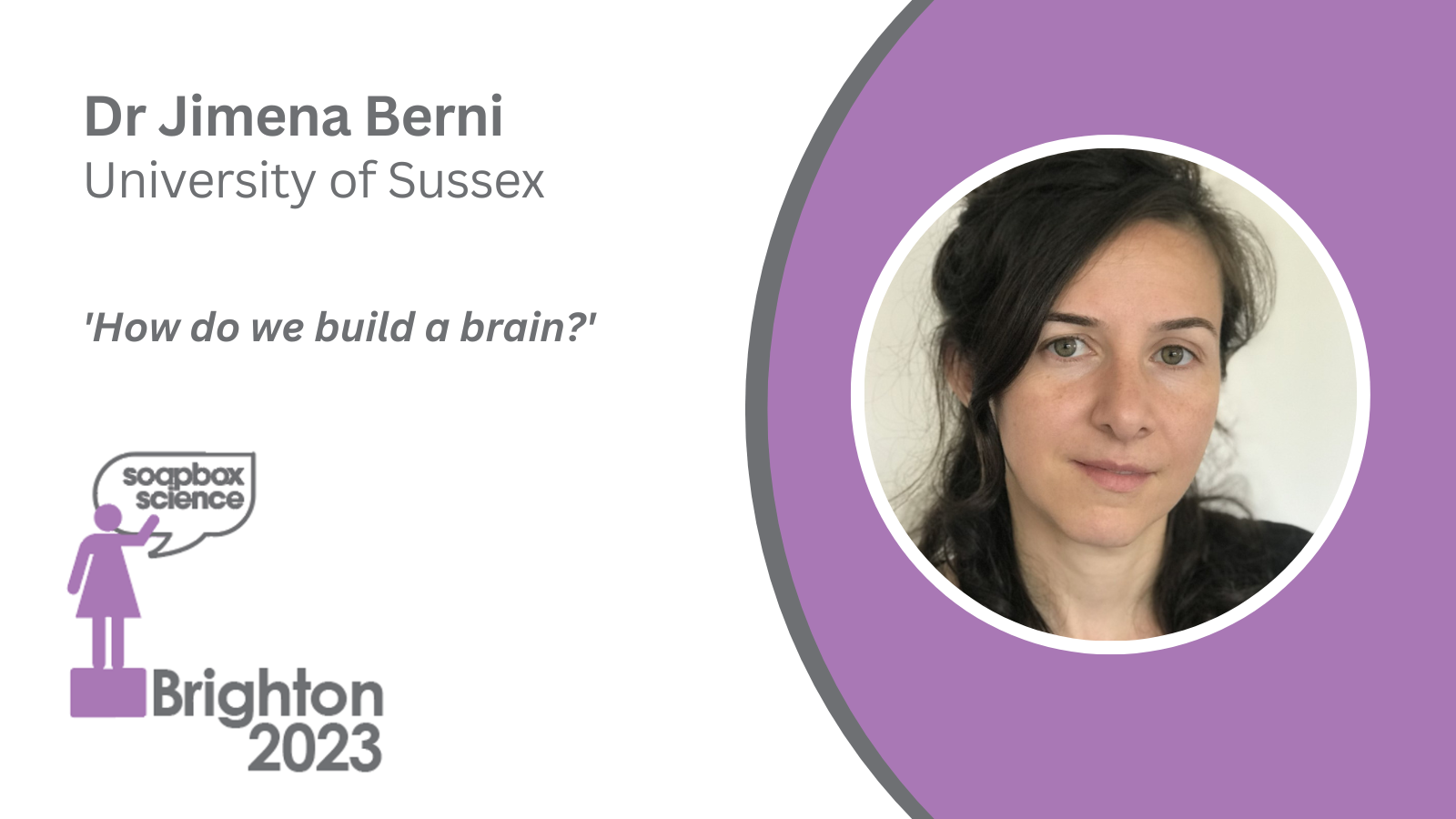
Jimena is a Group Leader & Senior Researcher at the Brighton and Sussex Medical School, University of Sussex. She studied biology at the University of Buenos Aires where she also did her PhD studying the genetic basis of circadian rhythms. She then moved to the Department of Zoology, University of Cambridge, where she obtained a series of prestigious fellowships (EMBO, JRF-Henslow Fellowship, Wellcome Trust Strategic grant) to conduct her researcher studying the development of the motor system. In 2015, funded by the Wellcome Trust and the Royal Society, she started her laboratory studying the role of Hox genes for the diversification of neural circuits, in the Department of Zoology, at the University of Cambridge. She joined the University of Sussex in 2019.
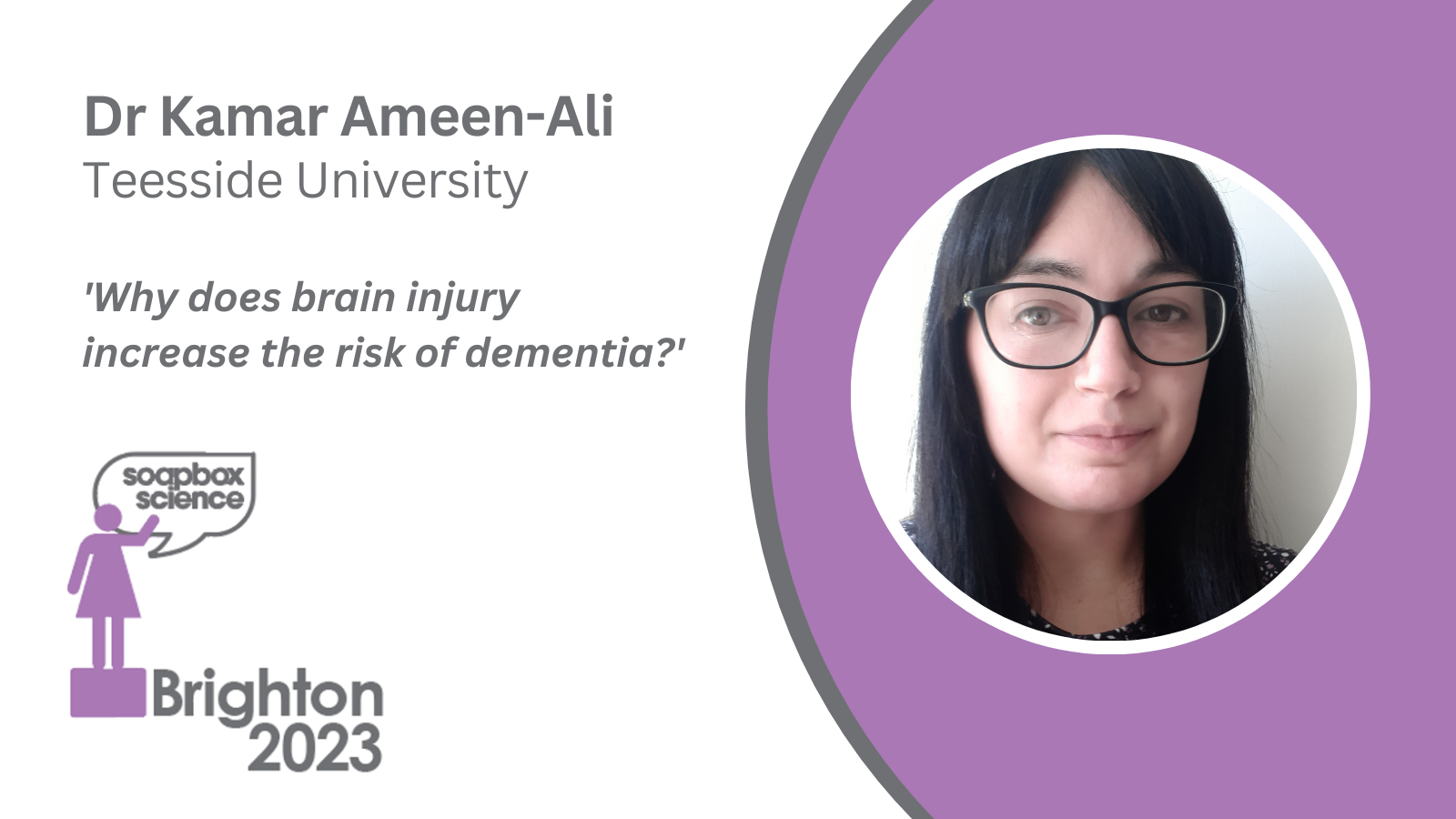
Kamar is a lecturer in biomedical science at Teesside University where her research uses human post-mortem brain tissue to understand how neuroinflammation drives the progression of neurodegenerative diseases which lead to dementia, and how traumatic brain injury is a risk factor for dementia. Kamar obtained her PhD in behavioural neuroscience and neurobiology from Durham University which involved refining rodent recognition memory tasks to understand the processes of memory function. Following her PhD, Kamar worked at the University of Sheffield using a mouse model of Alzheimer's disease to assess the relationship between cognitive impairment and progression of disease pathology, with a specific focus on immune cells in the brain called microglia, and how their function is altered in Alzheimer's disease. In her next research positions at Newcastle University and then University of Glasgow, Kamar used human post-mortem brain tissue to investigate altered microglial function following stroke and traumatic brain injury, respectively.

After studying chemistry and physics as an undergraduate, Laura started her PhD in physics at the University of Sussex in 2017. Since graduating she has continued this work as a postdoctoral researcher at the university. Her research is focussed on building a tabletop experiment to search for dark matter in the universe and new physics beyond our current theories.
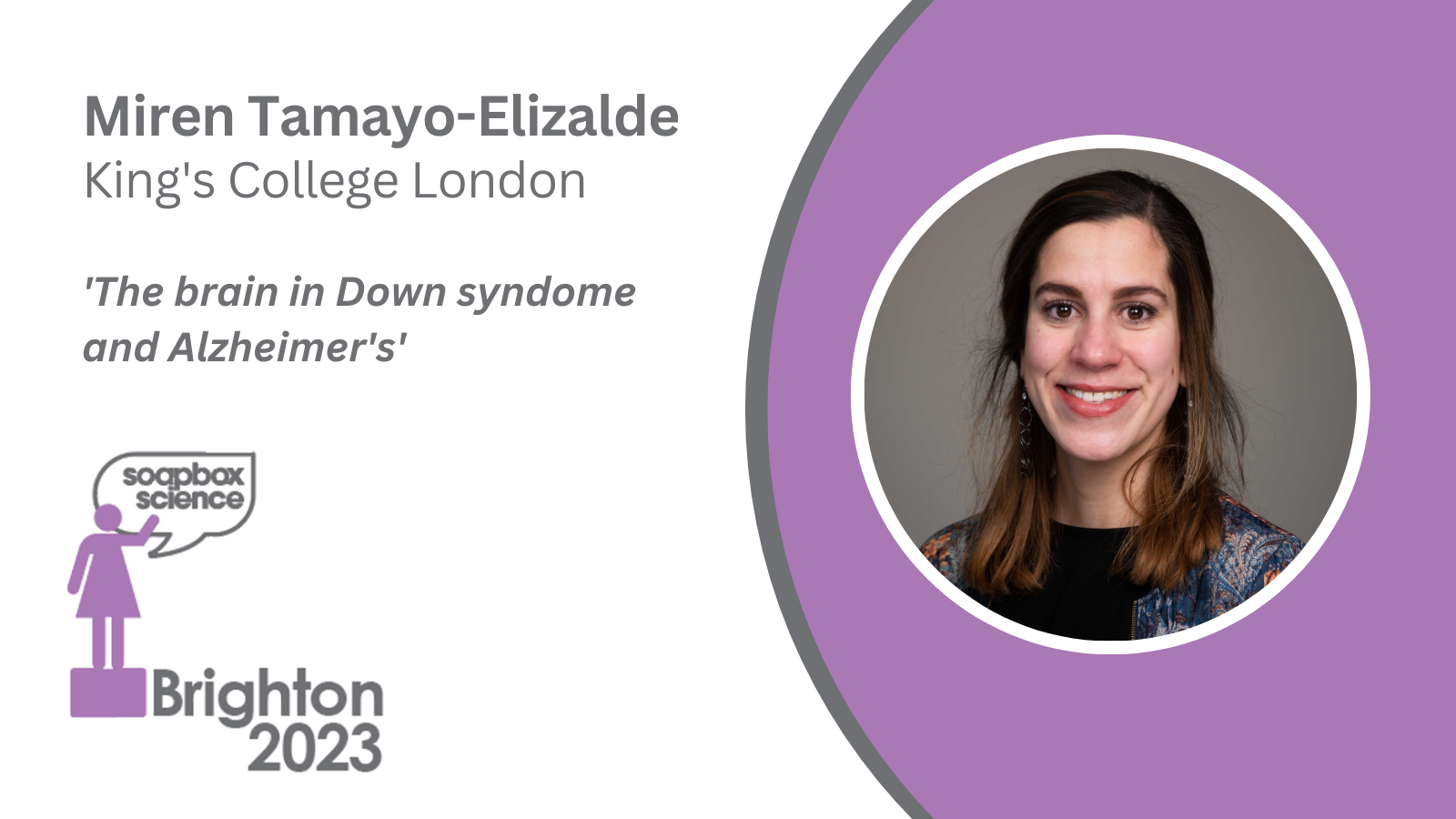
Miren developed a passion for the brain when she volunteered with a group of individuals with brain palsy at the end of high school. She then went on to study a BSc. in Physics at the University of Zaragoza, where she very much enjoyed learning about the biophysics of neurons. She then did an MSc. in Nanoscience and Nanotechnology at the University of Barcelona with the idea of designing biocompatible structures to interact with the brain. She was then awarded a fully-funded Ph.D. scholarship at the University of Oxford, where she studied the multiphysics of the neuronal signal with the aim of using non-invasive mechanical waves to restore neurological pathologies. She is now a Postdoctoral Research Associate at King's College London, where she studies Alzheimer's Disease and other comorbidities in individuals with Down syndrome.
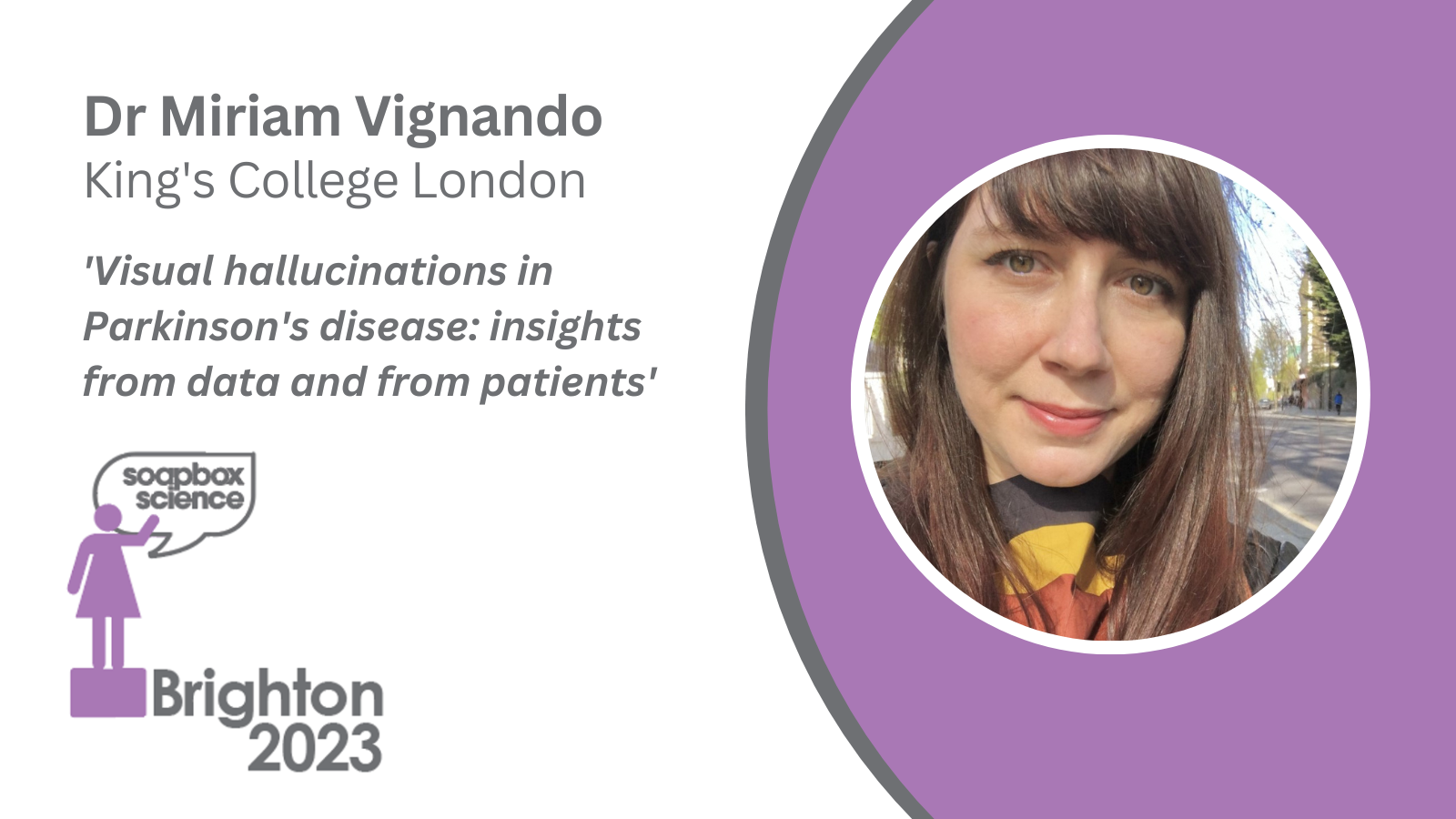
Dr Miriam Vignando is a postdoctoral researcher at King's College London (KCL) in Prof. Mitul Mehta's Neuropharmacology lab. She is currently researching psychosis and visual hallucinations in Parkinson's disease and Lewy Body Dementia using neuroimaging. She is also starting a new project on individual cognitive decline trajectories across neurodegenerative disorders using novel approaches that will allow to better understand the neural heterogeneity associated to dementia.
At KCL, Miriam is a member of the EDI committee where she co-organises the D&I film club. Miriam graduated from SISSA Neuroscience PhD Program in 2018, with a thesis on semantic memory and its disorders and her university background is in neuropsychology.

Natasha is a fourth year PhD student at the University of Sussex, researching ultra- cold atoms for quantum sensing. She completed her MPhys degree in the summer of 2019 at the University of Sussex and started her PhD in the Quantum Systems and Devices group at the end of 2019. In 2020 Natasha worked in Singapore for 4 months in an industry placement with Atomionics, a start-up developing a portable gravity quantum sensor.
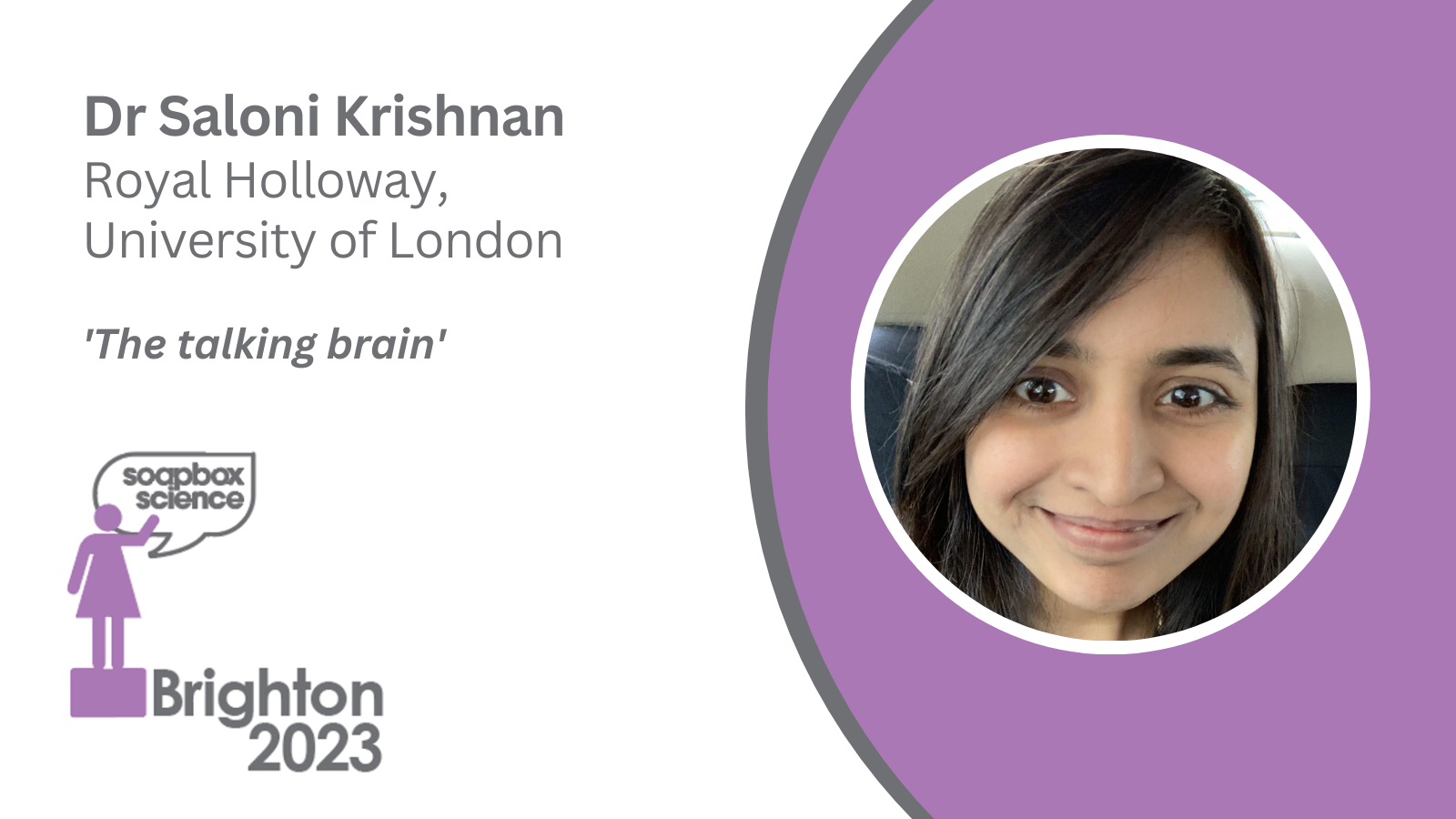
Saloni Krishnan is a developmental cognitive neuroscientist by training. She leads a research group at Royal Holloway. Her research focuses on brain differences in childhood communication disorders, such as DLD (developmental language disorder) and dyslexia. Saloni is an Academy of Medical Sciences Springboard Award Holder and an MRC New Investigator. She has won several awards, including the Neil O'Connor Award from the British Psychological Society. She was named a Rising Star by the Association of Psychological Sciences in 2022. She works as an editorial board member at Communications Psychology and as an associate editor at the International Journal of Language and Communication Disorders. Saloni's research has featured on the BBC, the Guardian and the Boston Globe.
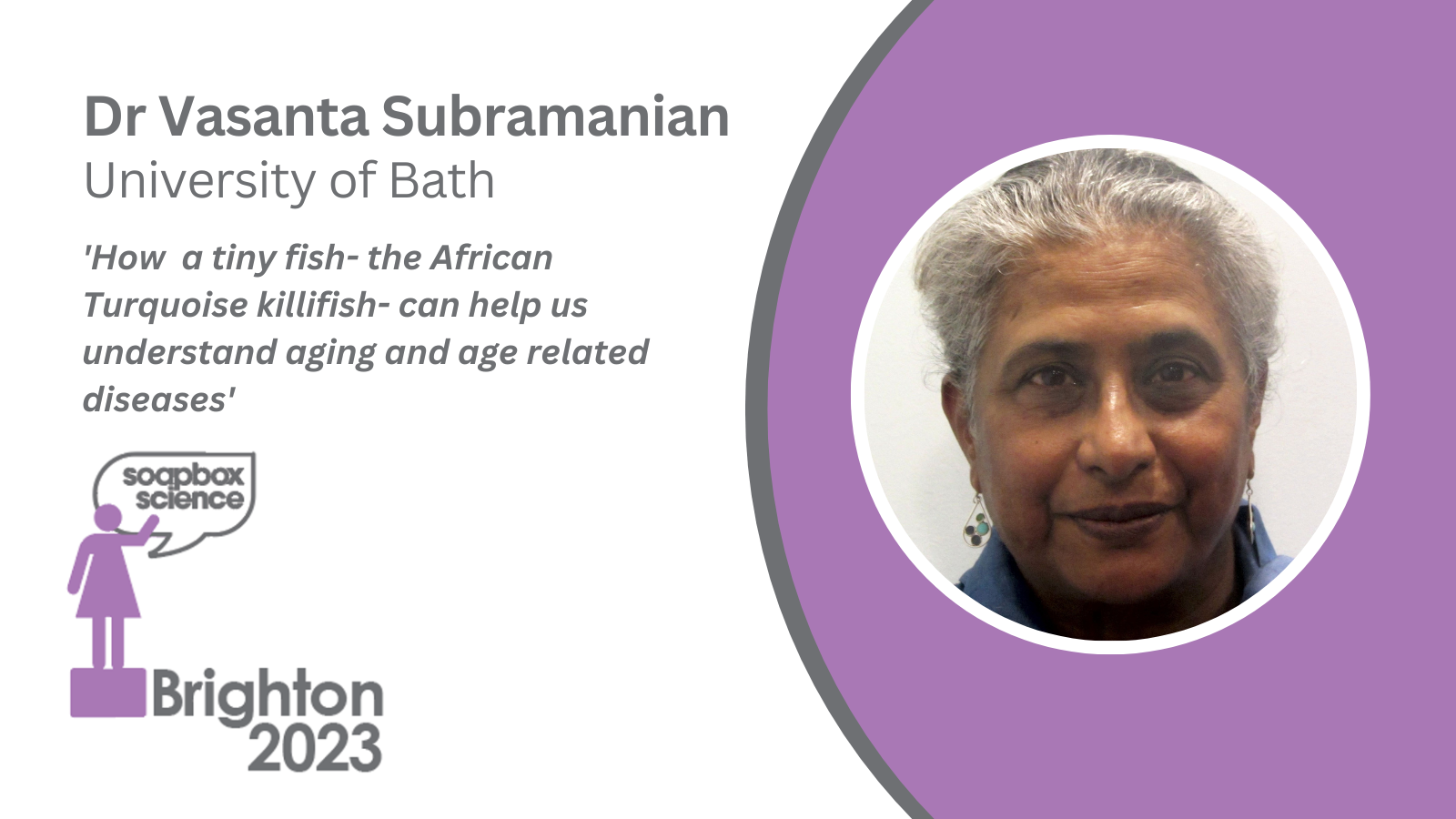
Dr Vasanta Subramanian completed her PhD in Biochemistry from the Indian Institute of Science Bangalore (India) and after post-doctoral stints at the ICRF-DBU in Oxford and the Max Planck Institute for Biophysical Chemistry, Gottingen (Germany) in Developmental Biology, she joined the University of Bath where is currently a Reader. In Bath, she initiated and established research and teaching in developmental biology using gene knockout technology in mice and embryonic stem cells. Vasanta's research interest is neurodevelopment and neurodegeneration and focuses on ciliopathies and motor neurone disease. She and her group create and use multiple model systems to understand these diseases such as knockout and gene edited mice and a rapidly aging fish as well as using human iPS cell derived brain organoids. Besides her research, Vasanta is interested in Public engagement activities, birdwatching and photography.
We thank the following organisations for their support in making Soapbox Science Brighton 2023 such a successful event.




































































